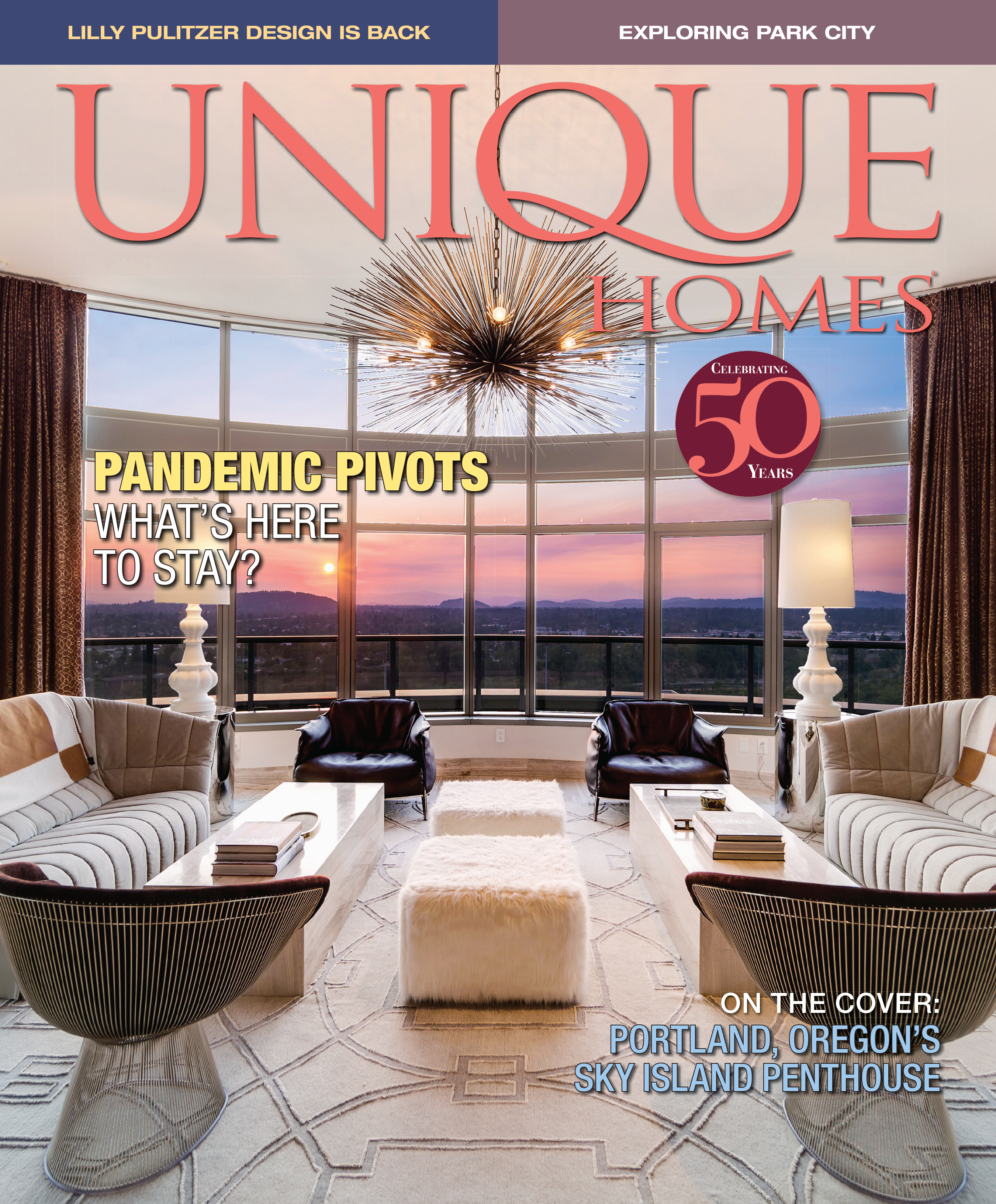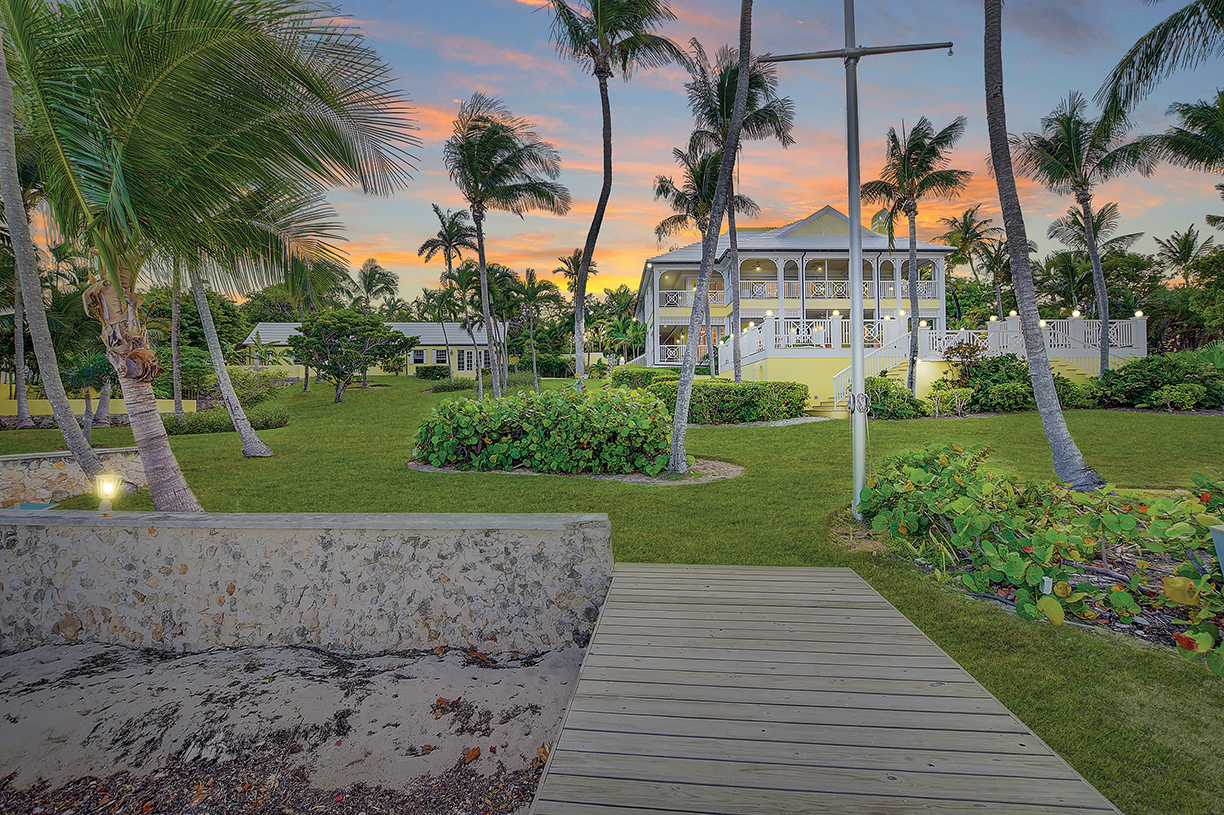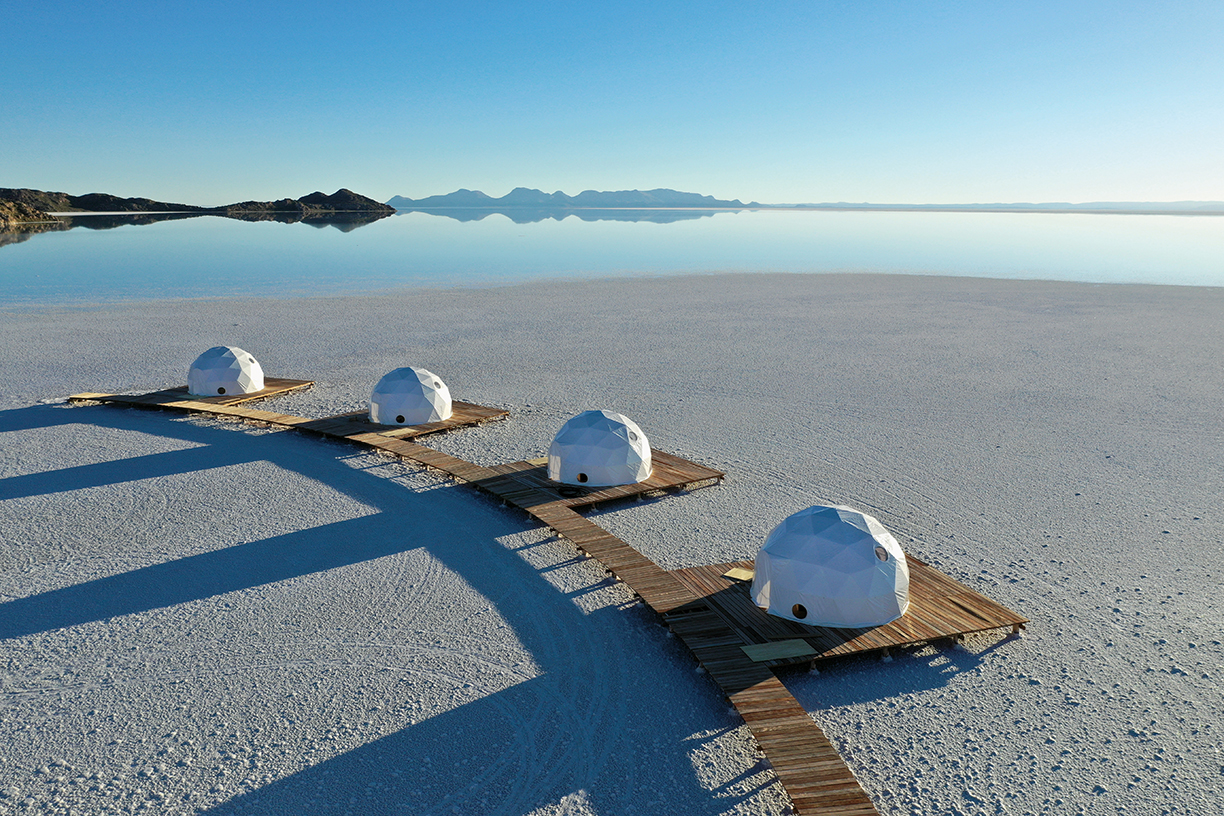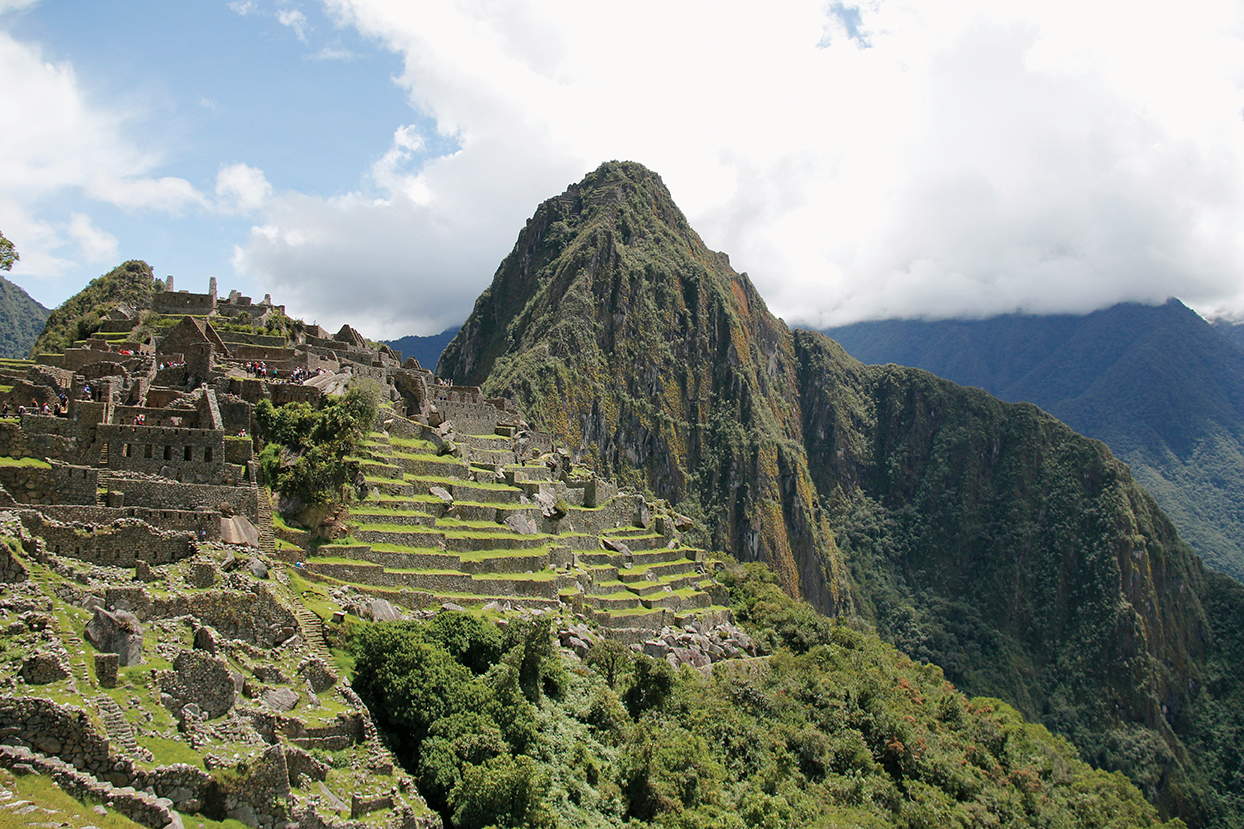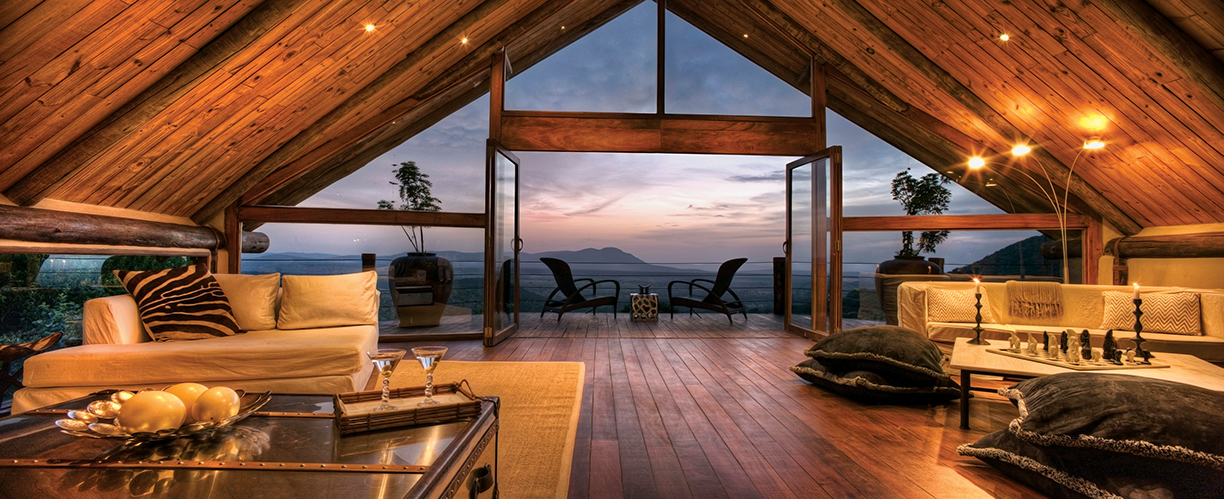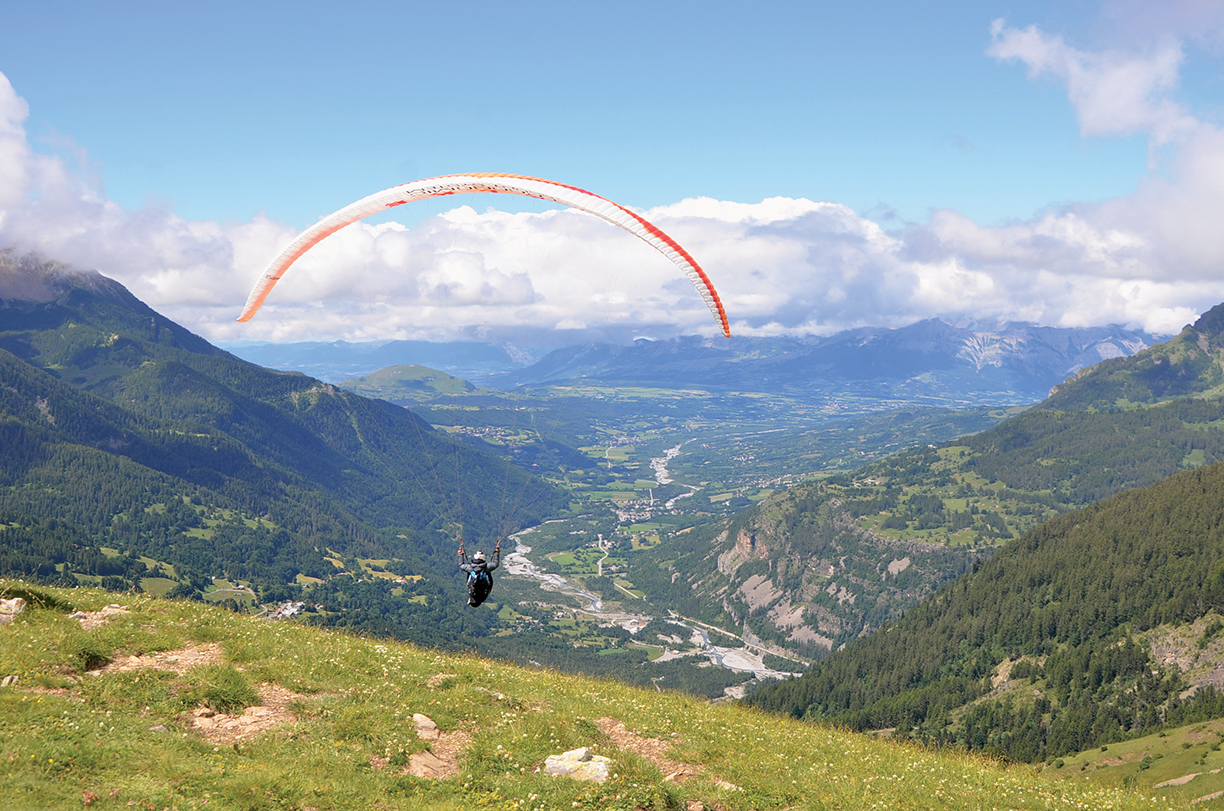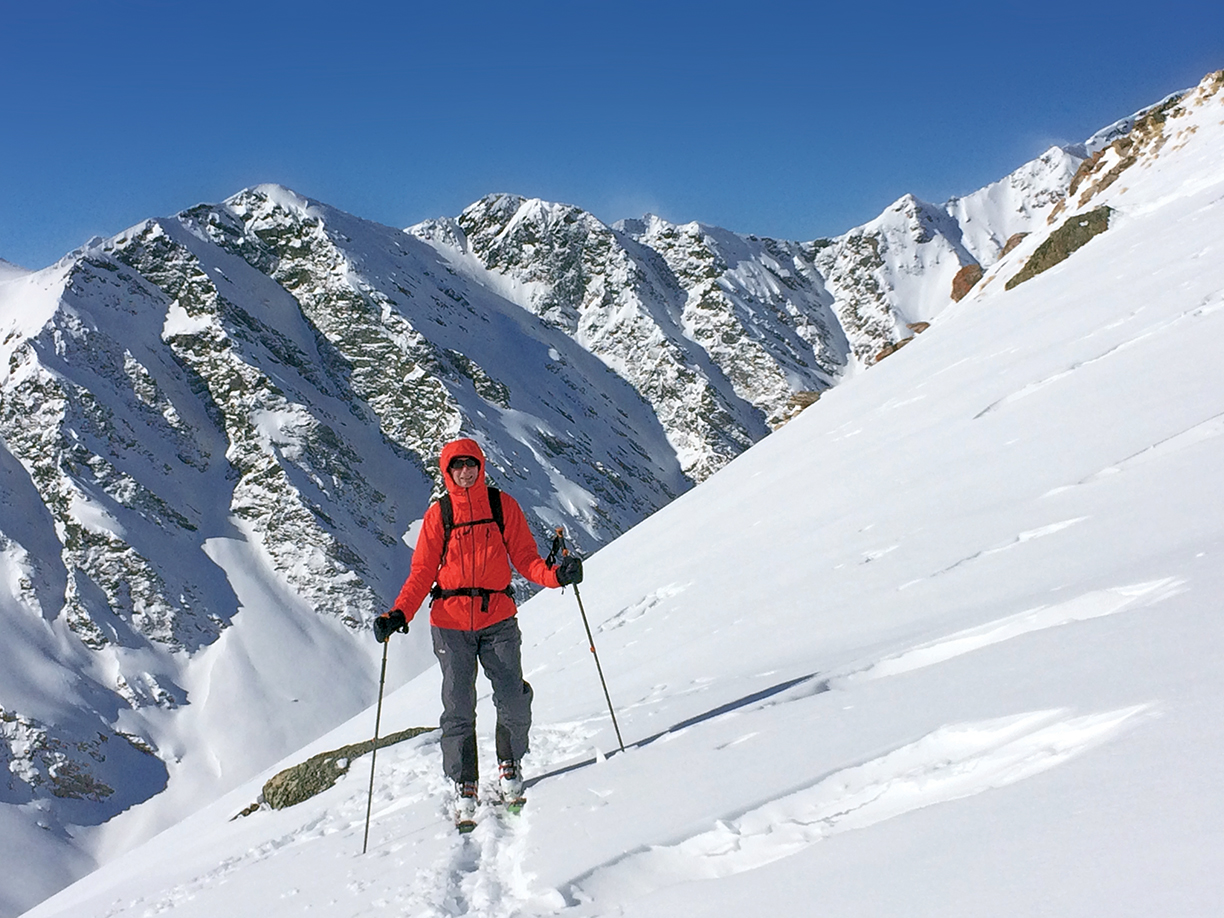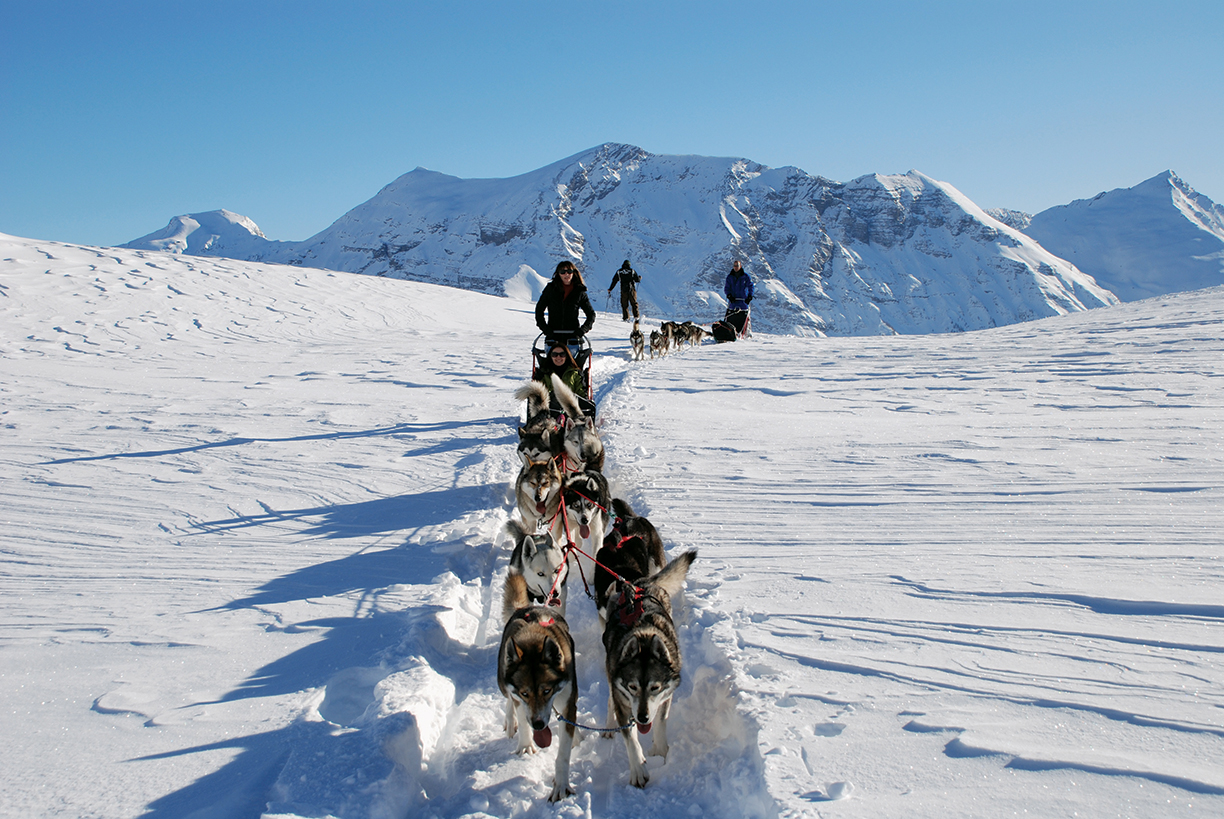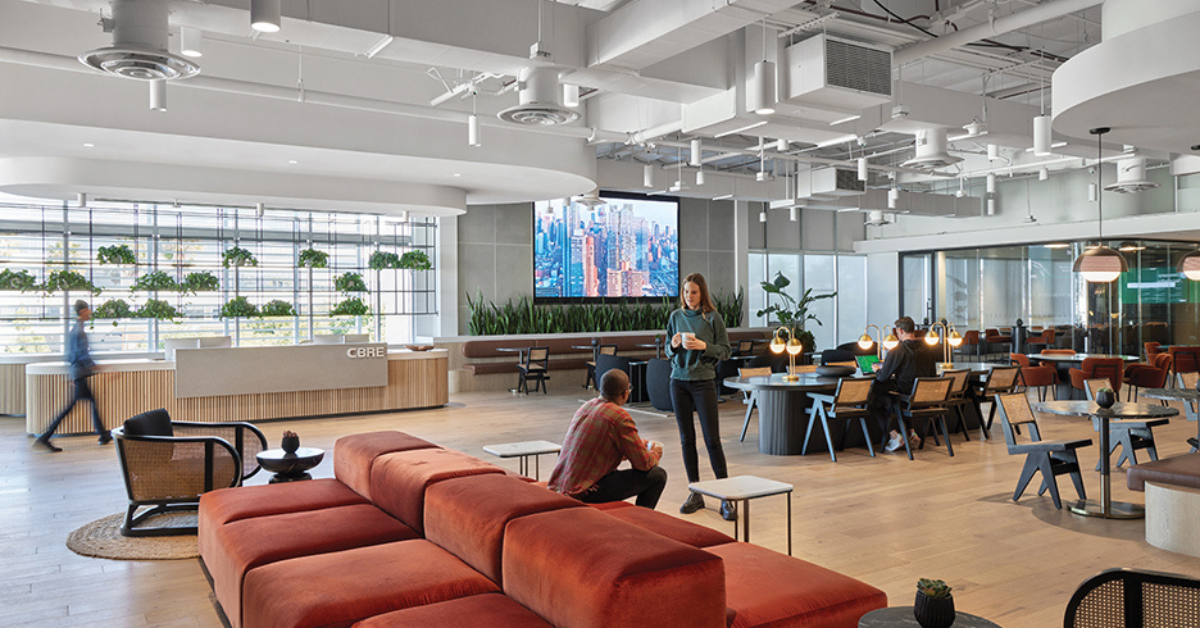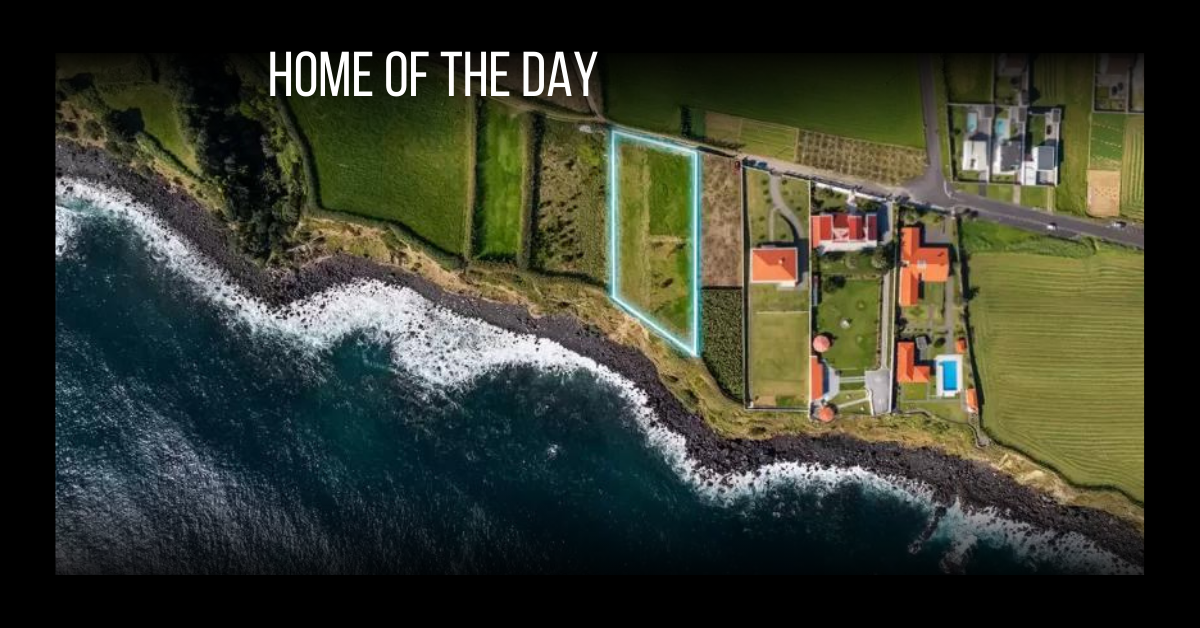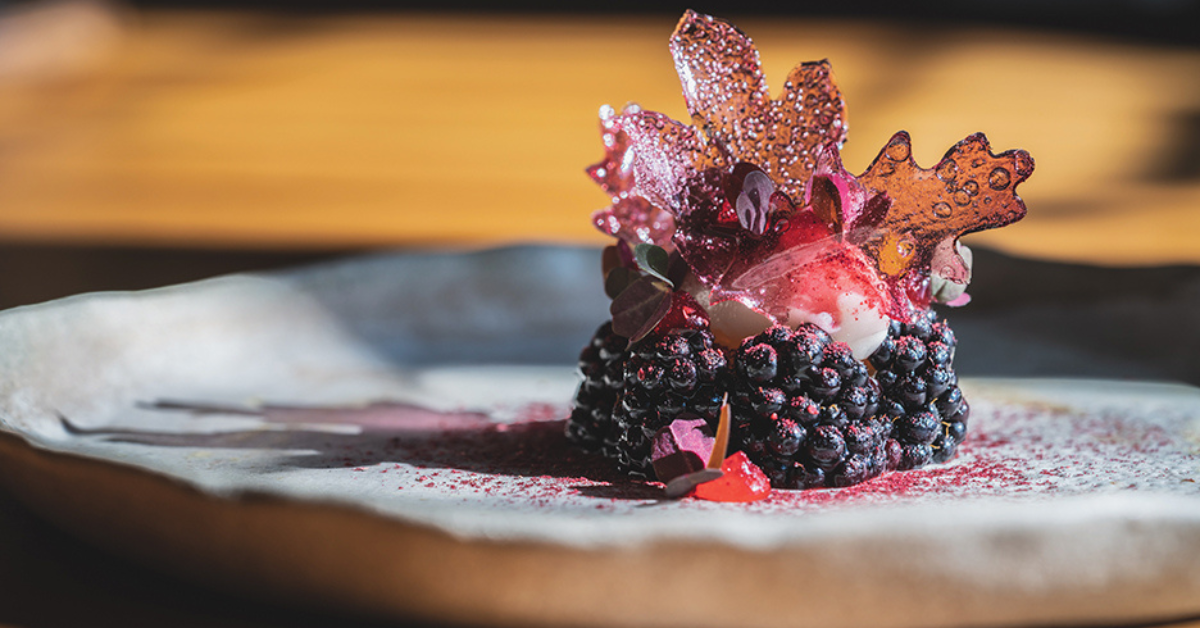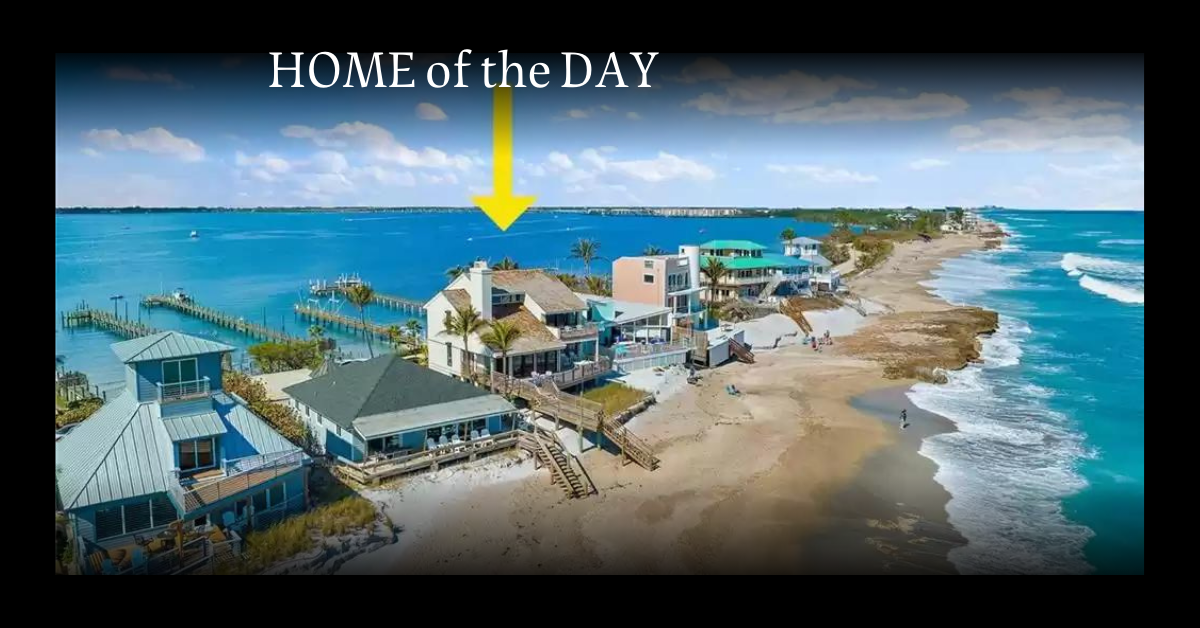Utah is known for its top-rated ski slopes, mountain resorts, and vast natural landscape that lends itself to a slew of outdoor activities.
Park City in particular, located east of Salt Lake City, especially optimizes the exhilarating outdoors, housing three of the best ski resorts in the world as well as Utah Olympic Park. However, skiing doesn’t fully encapsulate the essence of Park City. The terrain also allows for mountain biking, horseback riding, golfing, and paddle boarding, just to name a few.
Park City also specializes in luxury resort living, which blends sumptuous indoor facilities with the expansive outdoors. Promontory Club, a private residential community that is the epitome of luxury living, spans over 6,400 acres and offers a myriad of indoor and outdoor amenities. Chris Messick, the director of real estate sales at Promontory Club, describes it as a four-season private club, with relatively less humid summers and lighter winters.
“As people started spending more time here in the summer, people figured out Park City has more of a four-season feeling than some of the other spots. Summer is as important to us as winter,” Messick explained.
Messick credits Promontory’s appeal to its diverse selection of amenities, all of which occupy 190,000 square feet. Among them are a world-class equestrian center, a clubhouse and spa, multiple golf courses, a beach club, an Outfitter’s Cabin, from which members can embark on a number of outdoor adventures, and over 30 miles of trails.
According to Kerry Oman, associate broker at Summit Sotheby’s International Realty, this lifestyle along with the ongoing pandemic has yielded a booming real estate market in Park City.
“Because of COVID-19, we’ve seen an increase in out-of-state buyers coming and spending longer periods of time or even relocating to Park City. The last 12 months in Park City has been phenomenal with unprecedented growth. The demand has
been extremely high and properties sell really fast,” Oman said.
Along with Promontory Club, Oman speaks highly of Glenwild Country Club, which is rated the No. 1 golf course in Utah, and Deer Valley Resort, one of the world’s best with breathtaking mountain views. The opulence of these resorts are juxtaposed with Park City’s small-town charm. Visitors can venture to Main Street for quality shopping, fine dining, and historic attractions. Both Messick and Oman reiterate that Park City surprises people with its beautiful summers and the accessibility of outdoor activities during the season, making it an ideal, year-round retreat.
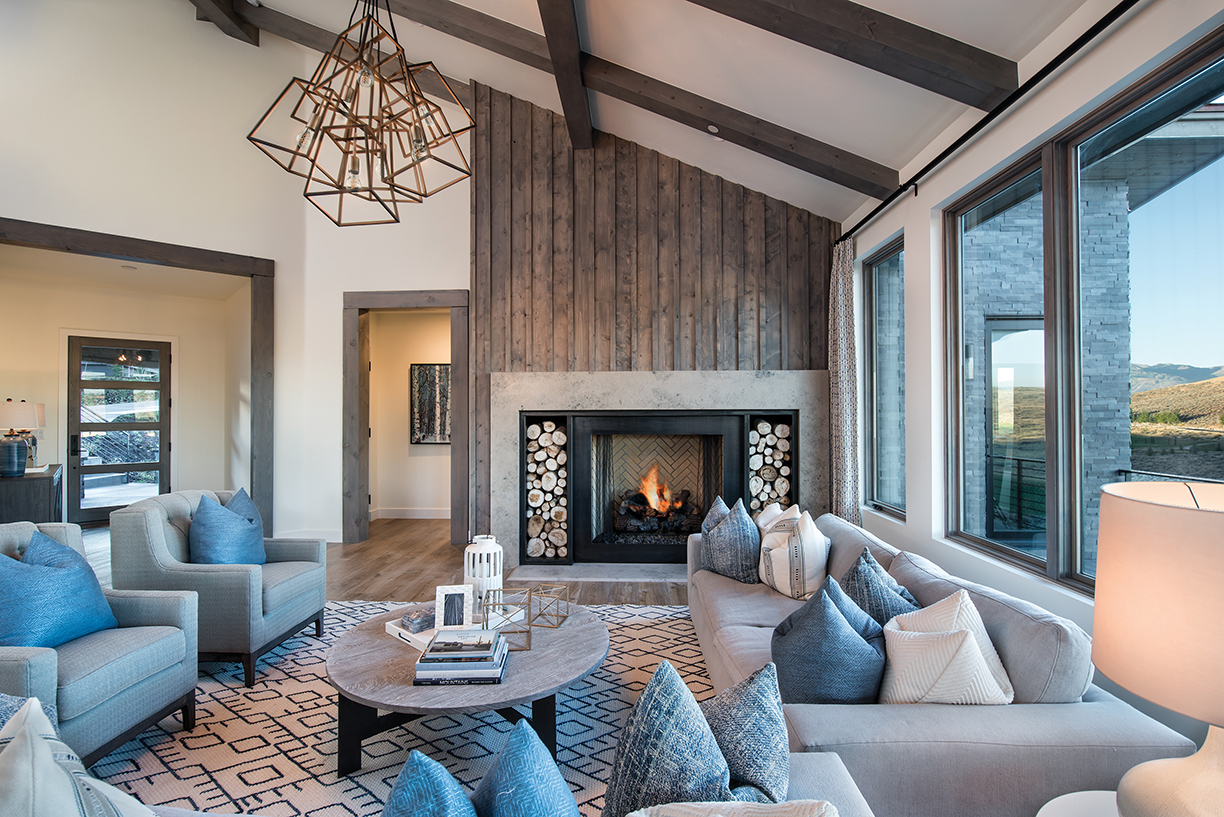
Photos courtesy of Promontory Club.
This story originally appeared in Unique Homes Fall ’21 issue. Click here to see the digital version.
With 170 feet of beachfront and a 98-foot private dock, this 5-bedroom, 6-bath estate home sits on 1.5 acres on the longest natural beach on the northeast shore in Nassau, Bahamas. The majestic home greets all with a grand circular, brick-paved driveway with an electric gate.
“The gracious entrance, and its remarkable sea views from the lower and upper patios, make this home ideal for entertainment,” says Nicole Fair of Kerry Sullivan Real Estate who is listing the property for $4.5 million. Fine features of the home include Jerusalem stone flooring, Abaco pine and cherry wood cabinets.
“Guests will be charmed by the spacious foyer with sweeping mahogany staircase and tasteful décor,” says Fair. The home also features a wine cellar, terraced gardens, electric shutters, a generator and a guest cottage.
For more information, contact:
Nicole Fair | Kerry Sullivan Real Estate
Nicole@KerrySullivanRealEstate.com
KerrySullivanRealEstate.com
242.424.2513
Some of the world’s finest hotels have accepted hundreds of thousands of new guests: honeybees that reflect a commitment to sustainability.
In an era when chefs and consumers are obsessed with conscientious sourcing and sustainability, restaurants are turning to local artisanal producers of cheeses, vegetables and meats. For a natural, sustainable sweetener that cannot get more local, luxury hotels around the world are converting rooftops into honeybee farms, a movement embraced by environmentalists and hotel guests alike.
Author Leslie Day, a naturalist who is passionate about her native New York, has spent a career documenting the city’s birds and trees. Her 2018 book Honeybee Hotel chronicles the rooftop garden and beekeeping operation at Midtown Manhattan’s Waldorf Astoria hotel. The book is a loving celebration of the iconic hotel, now undergoing a $2 billion renovation, and the natural world that doggedly prevails in the Big Apple.
Dr. Day — she holds a doctorate in science education from Columbia — was inspired by the Art Deco property’s conversion of its 20th floor rooftop into a bountiful garden and honeybee farm in 2012. The transformation not only enhanced the hotel’s culinary offerings, but brought together a community of humans to care for colonies totaling approximately 300,000 apis mellifera honeybees. Pleased to see other hotels emulating the Waldorf Astoria’s efforts, Day suggests, “This is a strong statement that a hotel cares about the environment and cares about the ingredients they serve their guests.”
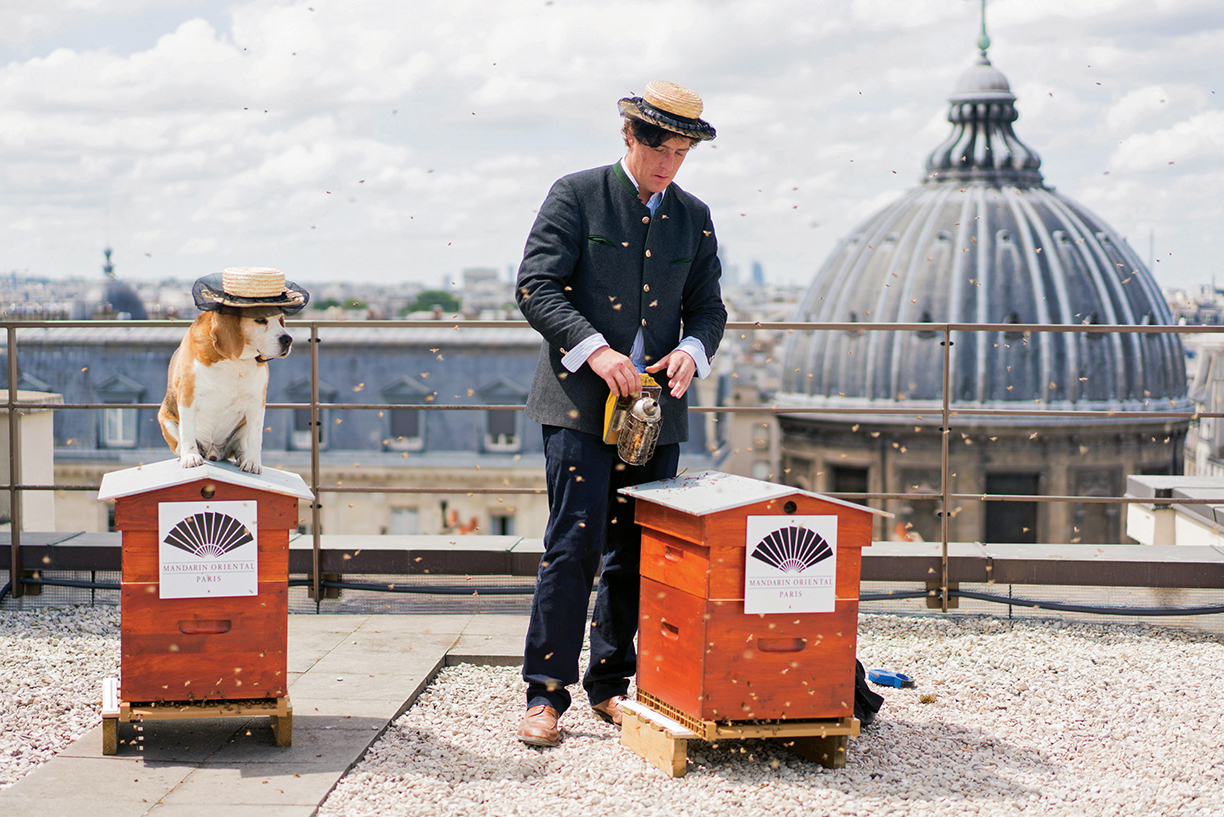
Mandarin Oriental Paris
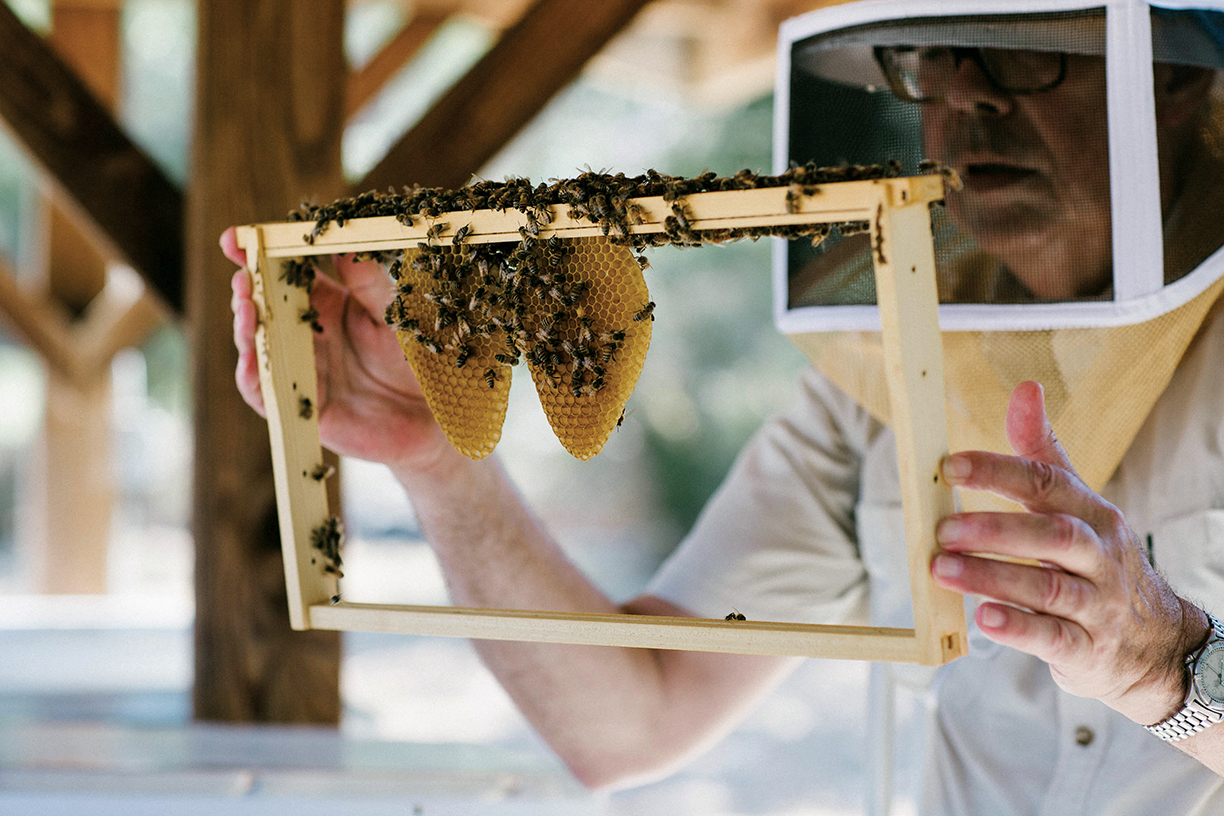
Ojai Valley Inn
Day reports bees thrive in urban settings and notes even Manhattan is surprisingly hospitable to bees. “Before the chefs and staff put in the garden, the bees would fly to Central Park — about a beeline of a mile away from the Waldorf Astoria — to forage on flowering plants,” reports Day. “The city offers a veritable feast for pollinating animals,” she insists. A strong proponent of urban beekeeping, Day observes, “City beekeepers develop a relationship with these amazing little animals and help them stay healthy by monitoring the hive throughout the year.” She says of the challenging hobby, “It’s a relationship that brings you close to the natural world, even in an urban environment.”
David Garcelon, the chef Leslie Day features in Honeybee Hotel, arrived at the Waldorf Astoria after previously nurturing bees at the Fairmont Royal York in Toronto. His beekeeping at the Royal York, starting in 2008, was the genesis of a worldwide “Bee Sustainable” program adopted by more than 20 properties in the Fairmont Hotels & Resorts organization. Now hotel manager at Fairmont Banff Springs, Garcelon is attempting to overcome a restriction of introducing honeybees, a non-native species, into Canada’s Banff National Park.
“It’s not often you’re able to do something groundbreaking in a hotel over 100 years old,” recounts Garcelon of his bee program at the Waldorf Astoria. “There was a great deal of excitement when we added the hives, a lot of ‘buzz’ in the media as well,” he says. “However, the most rewarding aspect for me was seeing the look on guests’ faces when we told them we produced our own honey in Midtown Manhattan, then being able to take them to see the hives,” explains Garcelon, who appreciates any ingredient that has a story to tell.
Thanks in part to Fairmont’s aggressive program, the practice of hotels caring for honeybees is not confined to North America. In London, 350,000 bees reside on a third-floor garden at St. Ermin’s Hotel and in Paris, the very chic Mandarin Oriental — it is located on the fashion-forward Rue Saint-Honoré in the 1st arrondissement — has been honeybee-friendly since 2012. The honey produced by those Parisian bees is used in the hotel’s various restaurants and bars, including the Michelin two-starred Sur Mesure under the direction of chef Thierry Marx.
The Mandarin Oriental’s legendary beekeeper, Audric de Campeau (pictured with his companion on the rooftop of the hotel on page 26), has also introduced beehives to iconic Parisian monuments like Les Invalides and Musée d’Orsay. “Bees are an important part of the pollination cycle and often thrive in urban environments such as Paris, which has been a pesticide-free zone for the past ten years,” explains Mandarin Oriental’s general manager Philippe Leboeuf. To help restore the decreasing honeybee population and to contribute to biodiversity, the hotel maintains two rooftop hives hosting 100,000 Buckfast honeybees, a breed that adapts well to city life.
“Due to the specificity and the diversity of Parisian flowers, the Mandarin Oriental honey has a unique flavor, rich and complex,” reports de Campeau, describing it like a master sommelier. “It has a powerful and persistent scent of red fruits, and tastes wonderfully round in the mouth, with a bright, fresh finish,” he assesses. In addition to chef Marx and pastry chef Adrien Bozzolo, bartenders use the house honey in a cocktail of Champagne, yuzu liqueur and jasmine tea.
Most people outside the state are unaware of it, but Utah is known as the “Beehive State,” and the Waldorf Astoria Park City continues the practices of its flagship property in New York. Master beekeeper Debrah Carroll, who also serves as kitchen manager at the hotel’s Powder restaurant, maintains approximately 60,000 honeybees adjoining the onsite herb garden. Looking to become more sustainable in its food practices, the Waldorf Astoria initiated the program in 2014, complementing its emphasis on utilizing local ingredients. “The local sourcing is plentiful in our mountains, but we also wanted to have something, literally, from our own backyard,” explains Carroll, who concedes Utah’s dry climate presents challenges for beekeeping.
Carroll reports guests respond well to the uber-local honey, particularly when presented in the honeycomb. “The Waldorf Astoria honey has a wonderful wildflower flavor that works in various dishes and cocktails,” says the master beekeeper, citing seasonal fruit plates, salad dressings, candied pecans, and cheese or charcuterie boards, as well as a signature cocktail called the Astoria Tonic. VIP guests are treated to tours of the hives and garden, dressed in protective gear.
Dedicated to educating people on the virtues of beekeeping, Carroll reveals some extraordinary facts about honeybees that engender a greater appreciation for the house-made honey hotel guests drizzle into their tea. For instance, it takes 12 honeybees an entire lifetime (which is typically six to seven weeks) to generate a single teaspoon of honey, and in order to create a pound of honey, a hive of bees must travel 55,000 miles.
One might not expect 4,200 acres in the foothills of the Great Smoky Mountains to be a magnet for sophisticated epicureans, but Tennessee’s Blackberry Farm most certainly is. Almost everything that arrives on the dining table is produced on the premises, and that includes honey overseen by farmstead manager and beekeeper Dustin Busby, whose resume includes celebrated restaurants The Fat Duck and The French Laundry. He manages at least seven hives of European honeybees with access to tulip poplar, wildflowers and sourwood.
Most prized is the honey from sourwood tree blossoms, known for its sweet and spicy qualities, a hint of anise and agreeable aftertaste. Busby explains that factors such as time of harvest, weather conditions and even the specific portion of the hive from which the honey is extracted can influence taste. He is constantly developing new recipes for using the honey in the resort’s preserve kitchen and recently created a blueberry-elderflower jam using the house-made honey in place of sugar.
“Seeing the hives and talking about our bees are part of our garden and farmstead tours,” reports Busby. He adds, “More involved tours of the bees, including suiting up and looking at the hives or even collecting honey, are conducted from time to time on special request from guests.” Blackberry Farm honey is one of the many artisanal food products sold directly to hotel guests.
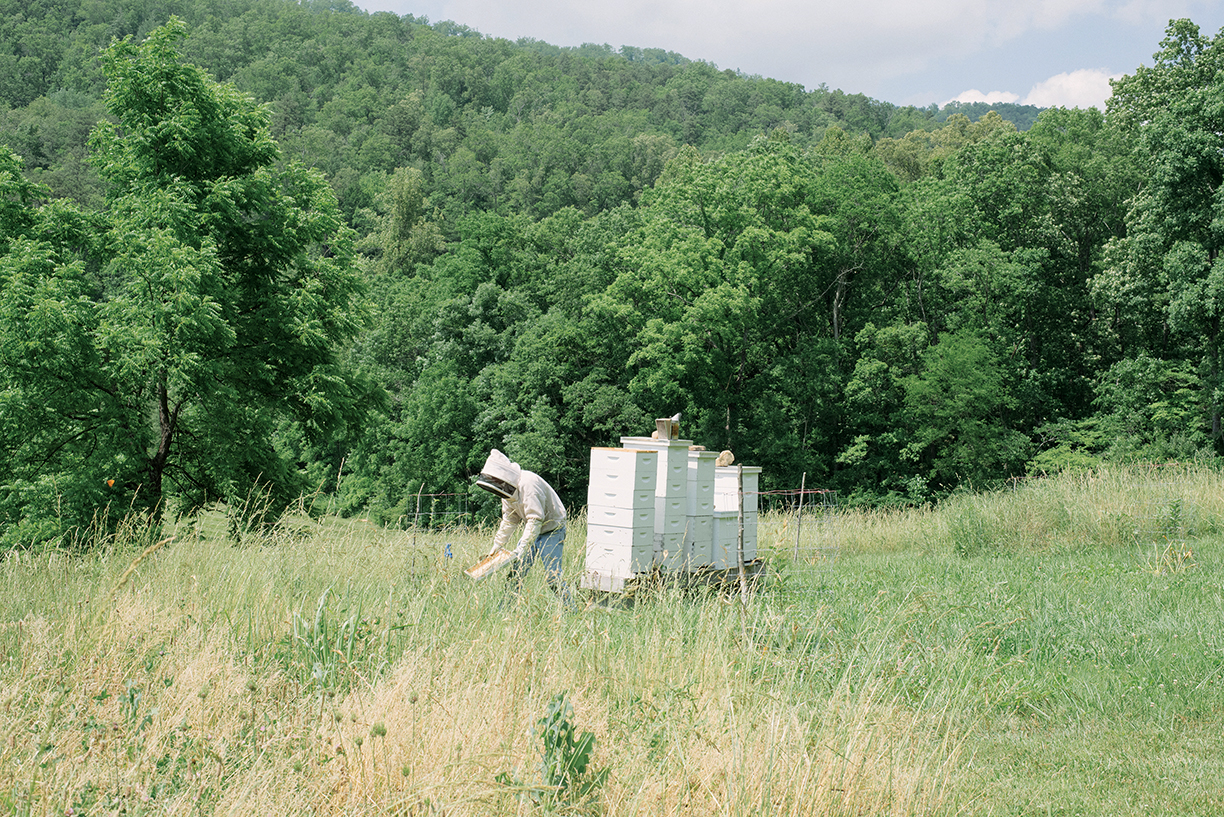
Blackberry Farm raises virtually everything served at the resort, including house-made honey.
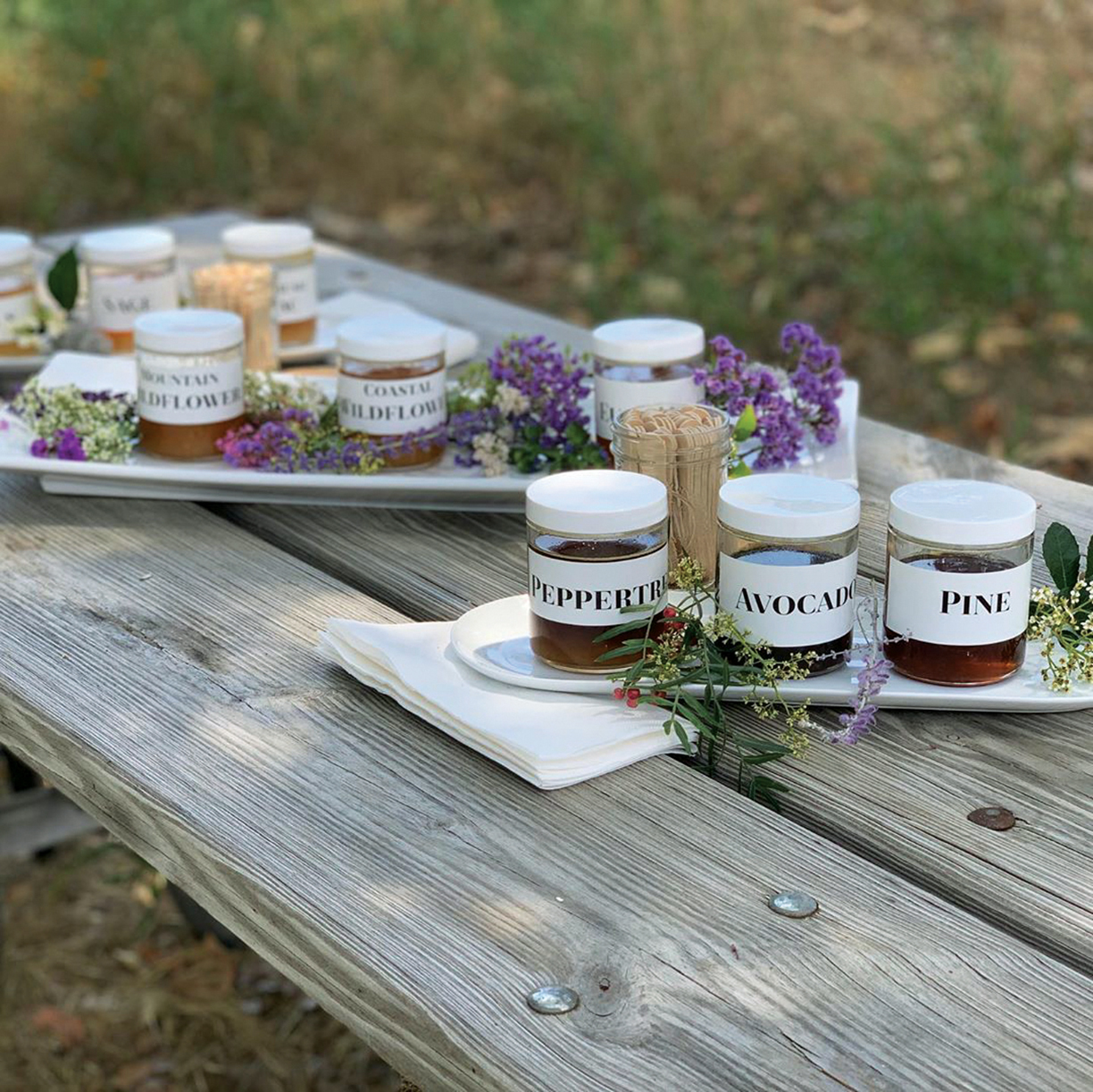
Honey produced at Ojai Valley Inn reflects the flavors of lavender, avocado, and citrus.
The Ojai Valley Inn is just 80 miles from downtown Los Angeles, but feels like another world. From its 220 acres in an idyllic coastal valley, guests enjoy access to the ocean and vineyards, as well as championship golf on site. The Farmhouse — this is a culinary event center directed by acclaimed chef Nancy Silverton — reflects the Inn’s commitment to food and wine. Guests who tour the retreat’s apiary in protective suits enjoy tastings of different honeys whose flavor profiles result from pollination of local plants like avocado, lavender and citrus.
“We’re extremely proud of our beekeeping program at Ojai Valley Inn, not only because it provides us with an amazing estate-curated product that we can offer our guests, but also because we believe strongly in good stewardship of the natural resources of the Ojai Valley,” reports executive chef Truman Jones. Emphasizing the positive ecological impacts yielded through the care of those prolific pollinators, he adds, “It gives us a huge return on our efforts by propagating the flowers and various fruits of the Inn and the entire Valley.”
In San Francisco, nearly a dozen hotels maintain rooftop beehives, including the Clift Royal Sonesta, which uses honey from its “Bee Sanctuary” in craft cocktails at its legendary Redwood Room. The Broadmoor in Colorado Springs, ranked among the world’s finest resorts, has also developed a strong apiculture program and Philadelphia’s Sofitel at Rittenhouse Square accommodates 480,000 honeybees on its rooftop garden, showcased in dishes at the hotel’s Liberté Lounge.
The beekeeping operations at these luxury hotels are an offshoot of an urban beekeeping movement that has become trendy in the last 20 years. The tasting notes of backyard honeys, sometimes sold at farmers markets and gourmet shops, mirror the flora of an area, even a specific neighborhood, much like a wine reflects its vineyard’s own terroir.
In addition to mesmerizing guests, keeping bees at hotels helps alleviate a crisis-level decline in the honeybee population that threatens entire ecosystems and adversely impacts food production for a hungry world. Master beekeeper Debrah Carroll reports that 80 percent of all flowering plants must be pollinated to survive, and that more than a third of the world’s food supply is dependent on pollination by insects like honeybees.
Addressing her nostalgic Waldorf Astoria, scheduled to reopen in 2022, naturalist Leslie Day comments, “I’m very hopeful the new management will read my book and bring the bees back.”
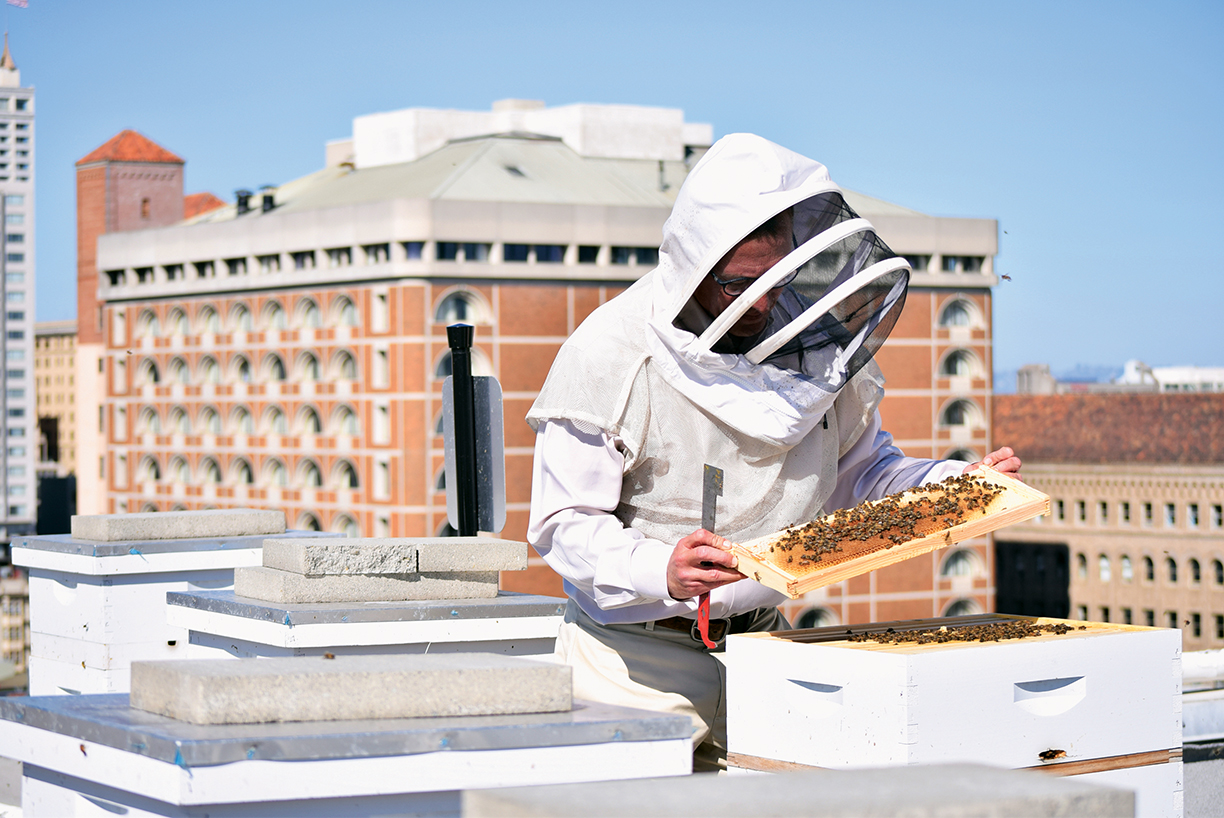
Honey from the rooftop of the Clift Royal Sonesta is incorporated into cocktails at the historic Redwood Room.
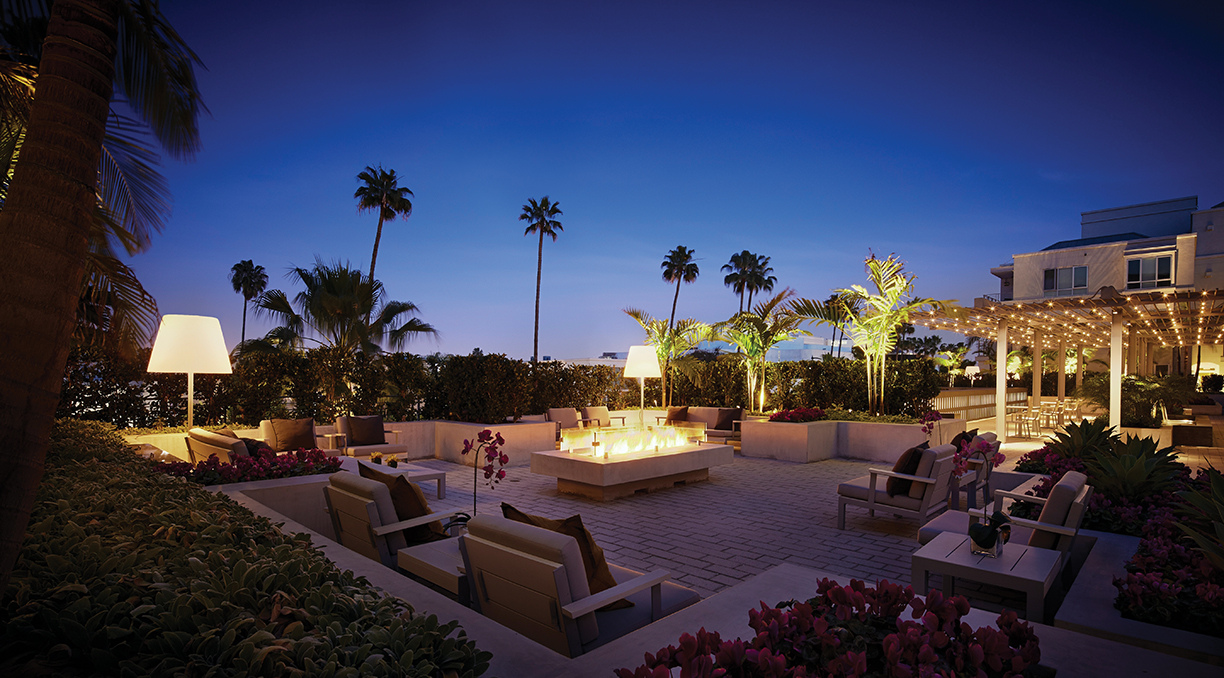
Residents of AKA Beverly Hills can enjoy the outdoor residents-only lounge, a spacious landscaped terrace with spectacular views of the Hollywood Hills.
Photo ©2014 Eric Staudenmaier.
In these times of social distancing and working from home, any amount of travel feels like an enormous reprieve from the new normal. Those needing or looking for high-end lodging away from home, for work or otherwise, might feel anxious striking out into a new city or living in a safe, clean environment. One brand is offering luxury, semi-permanent rental spaces in cities around the country that feel safe and more than comfortable.
The AKA brand originally formed in 2005 with the idea of recognizing an “unmet need in major cities for luxury extended-stay apartments with hotel services,” according to Elana Friedman, chief marketing officer of AKA. Founder Larry Korman and his family conceptualized furnished apartments that would satisfy residents’ need for flexible living arrangements without sacrificing luxury. Since then, according to Friedman, these innovative ideas have grown to incorporate the best in cuisine, design, wellness and technology in metropolitan locations all over, including London, New York, Los Angeles, Philadelphia, and Washington, D.C.
AKA specializes in weekly and monthly stays, therefore creating a “home away from home experience for our residents, no matter where they are traveling from,” Friedman says. She adds that to meet the demand of those who are looking for a self-sufficient living experience, AKA offers luxurious furnished apartments with modern kitchens, spacious floor plans and services as requested, all furnished in a contemporary style by renowned designers.
Each AKA location offers a diverse range of services designed to provide residents with comfort, choice and luxury for any length of stay. All locations provide on-site services such as a 24-hour front desk, dedicated doorman, meticulous housekeeping, valet and laundering, in-suite dining, secure transportation, and more. Private amenity spaces are included as well, from thoughtfully designed fitness centers and lounges, to cafes and cinemas.
With the developing public health crisis, priorities over privacy and cleanliness have grown, as well as a need for safe workspaces. AKA has not only recognized these concerns, but has adapted to remain open and flexible to residents.
“We concepted flexible office suites that will allow a person to book a suite to work, rent as a socially distanced office, or have the bed removed to create a workspace for two employees,” Friedman says. These suites also feature a full kitchen, private bathroom, copier/printer/scanner, complimentary WiFi, and can be booked on a weekly or monthly basis.
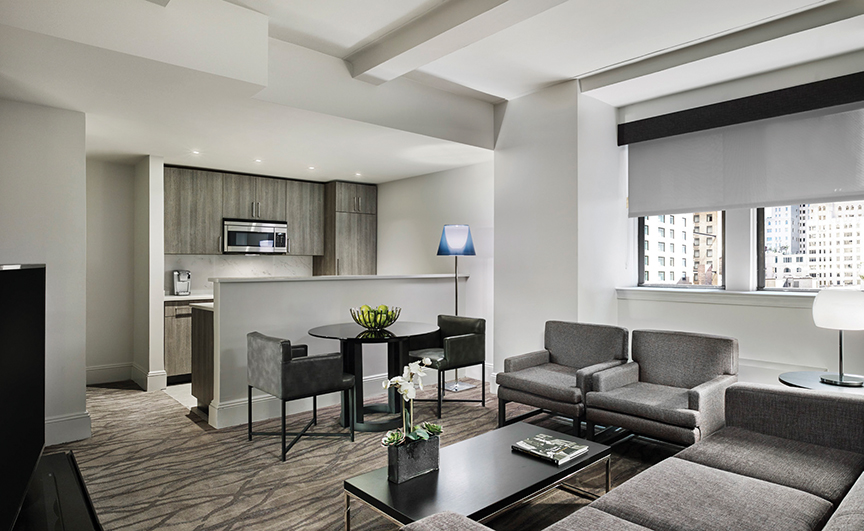
Flexible office space at AKA Central Park in New York.
Photo courtesy AKA Hotel Residences.
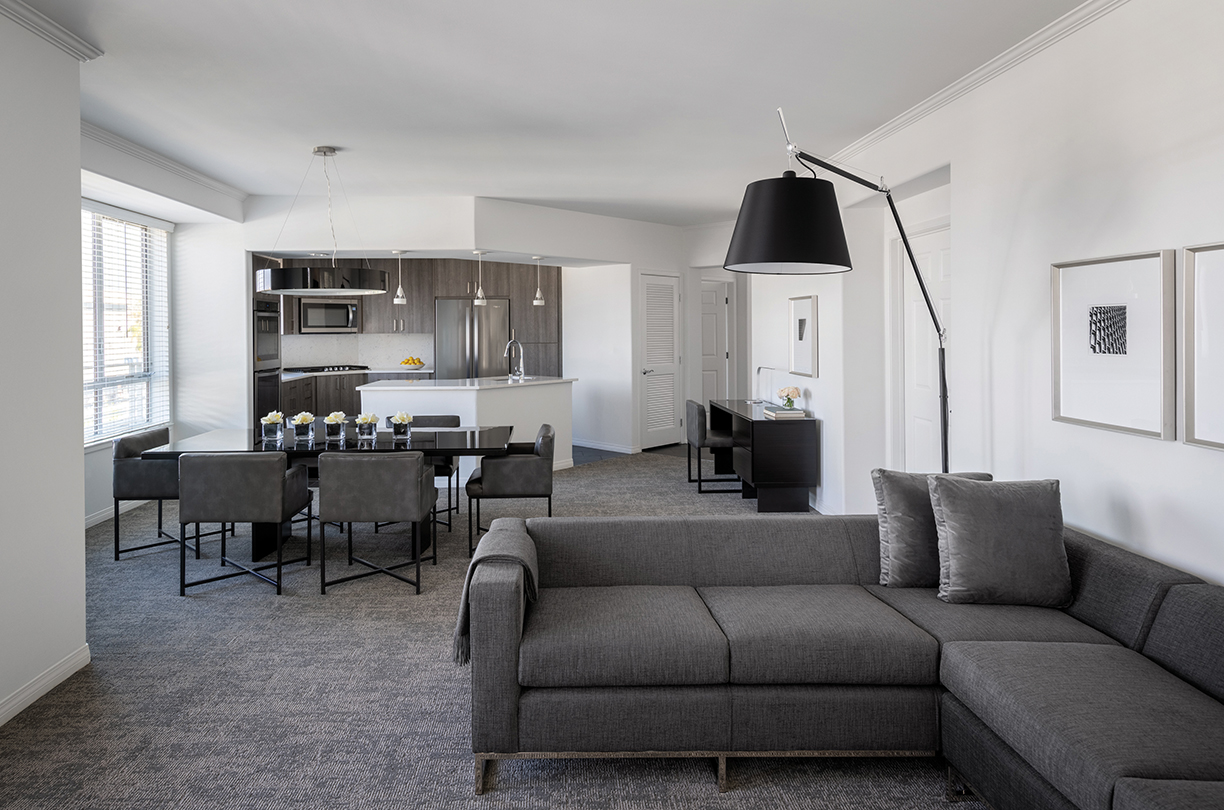
AKA Beverly Hills offers a contemporary residential oasis boasting suites with custom furnishings, private balconies and more.
Photo ©2018 Eric Staudenmaier
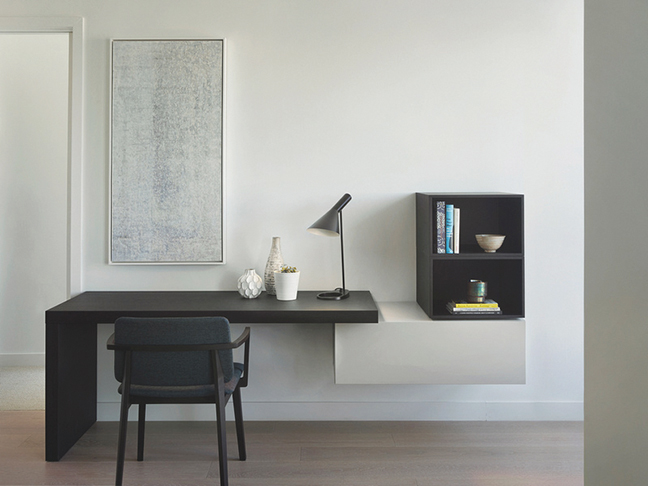
Private workspace at AKA University City.
Photo © Halkin Mason Photography
When it comes to traveling in today’s world, finding a balance between privacy and engaging activities can be difficult and have the potential to change the hospitality industry at its core. However, brands like AKA that are already seeing changes in what was “normal” prior to the pandemic, are finding ways to stay ahead. “People are now and will continue to be more hyper-focused on the cleanliness and safety of their surroundings, and these facets are taking the lead when planning a trip or experience,” Friedman notes. “Given that, we anticipate travelers will look for more extended-stay or serviced residence options coming out of the downturn as a way to have greater control over their accommodations.”
With AKA’s Live It! Program, AKA residents are encouraged to uncover new experiences like a local, while keeping safe in socially distanced settings. “From custom fitness sessions, improv classes, trapeze lessons, cooking classes and more, AKA connects travelers with the fabric of a city,” Friedman says. She adds that another new opportunity exclusive to AKA is an East Coast road trip package that offers travelers a chance to experience New York, Philadelphia and Washington, D.C., all in one trip. With two to three hours of driving between each destination, the getaway gives residents the opportunity to embark on a journey of sightseeing, outdoor activities, photo opportunities, local eateries, history and iconic stops along the way to the next city, all in a custom, outdoor, social-distanced activity itinerary.
For more information on the AKA East Coast Road Trip, visit the link here.
For more information on AKA’s Flexible Office Spaces, visit their website here.
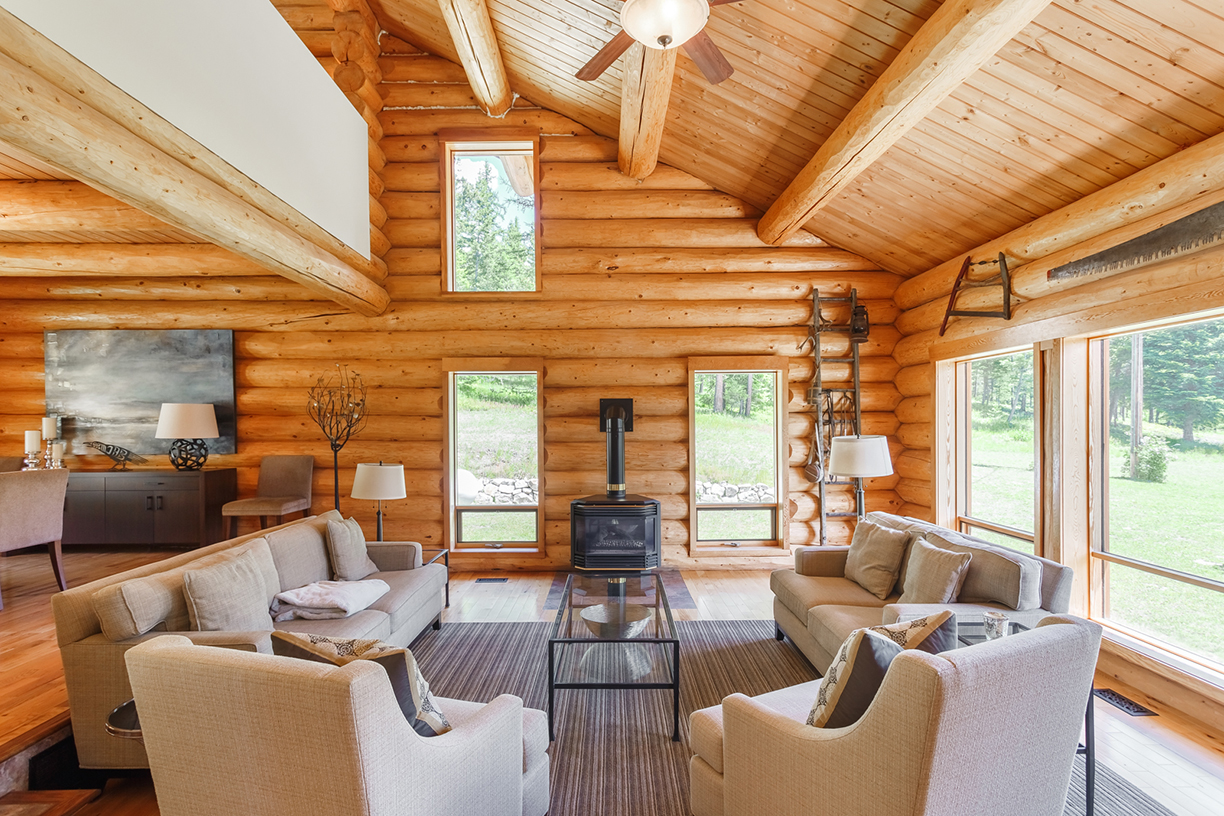
Reconnect with nature in this rare, stunning, custom home on a picturesque 20 acres. The well-manicured, park-like acreage boasts an unparalleled open and private setting with groomed trails for biking or strolling through the serene private landscape. The property boasts extraordinary features like a large heated shop, outbuilding for storage or equipment, and a clean, nicely finished 2nd home with a suite — and the possibility to subdivide.
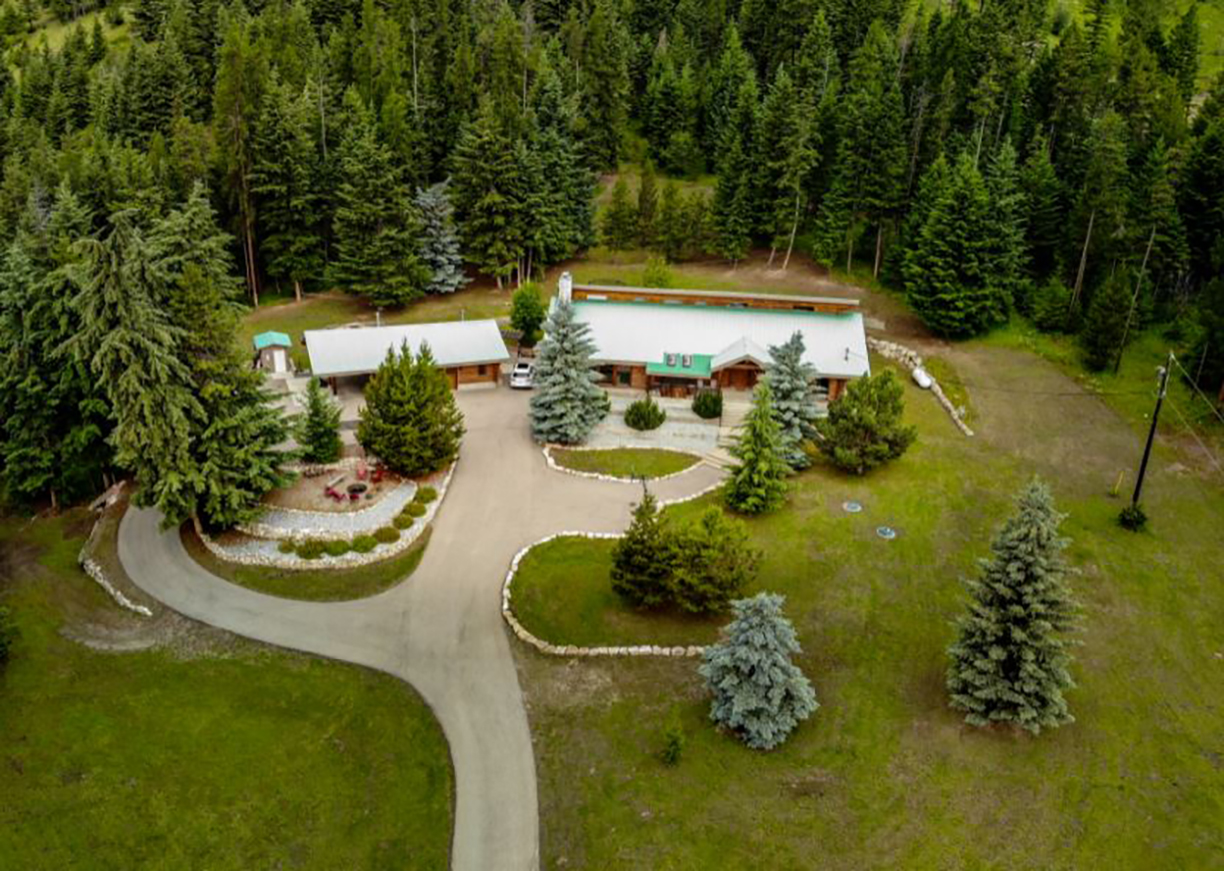
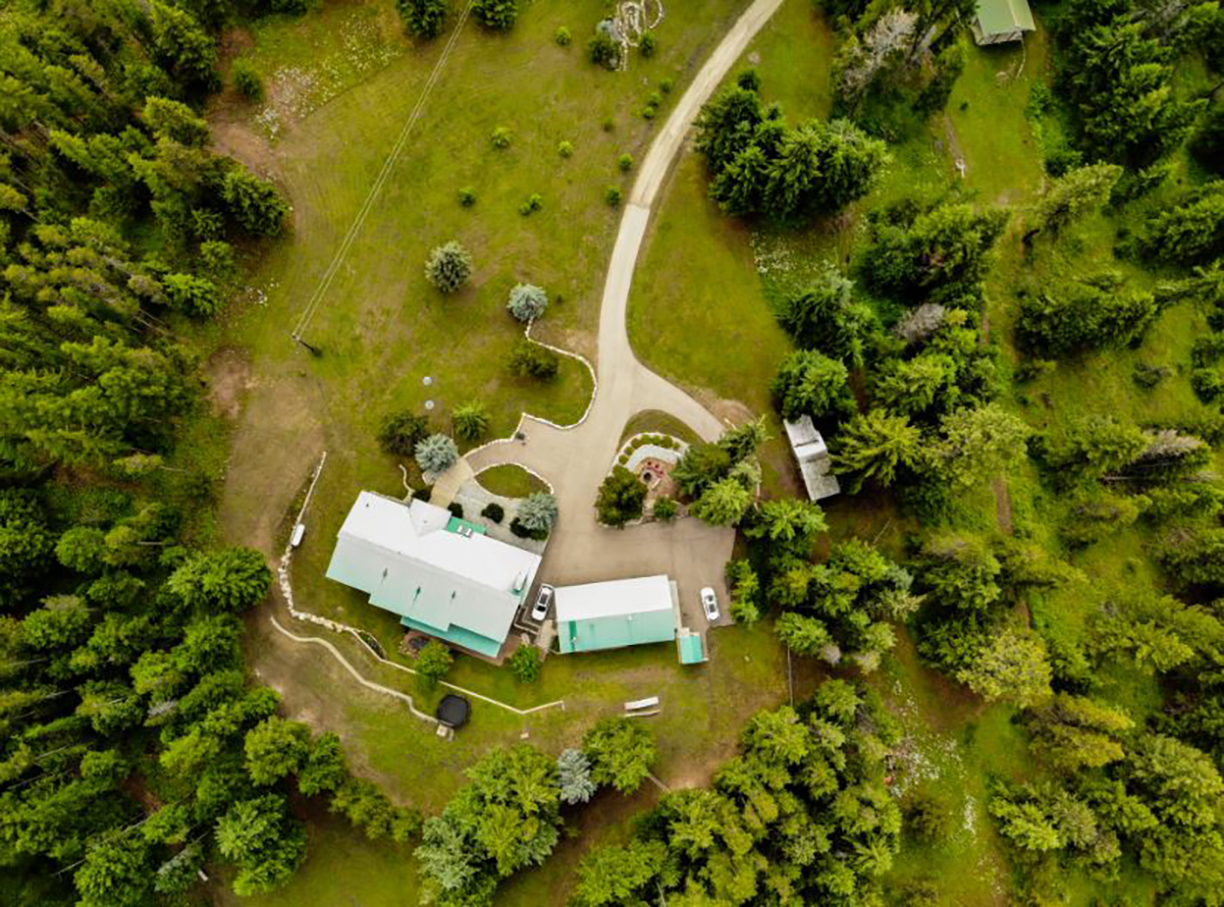
This home is packed with modern features — including vaulted ceilings, geothermal heating, and custom showers throughout — and a massive kitchen area with granite surfaces, gas range, and plenty of extra storage space.
The property is just a short drive to stunning lakes, Big White ski resort, hunting, fishing and more. Enjoy all of the conveniences at your own rural retreat, just minutes from town.
For more information, contact:
AJ Hazzi | Vantage West Realty Inc.
vantagewestrealty.com | info@ajhazzi.com
250.864.6433
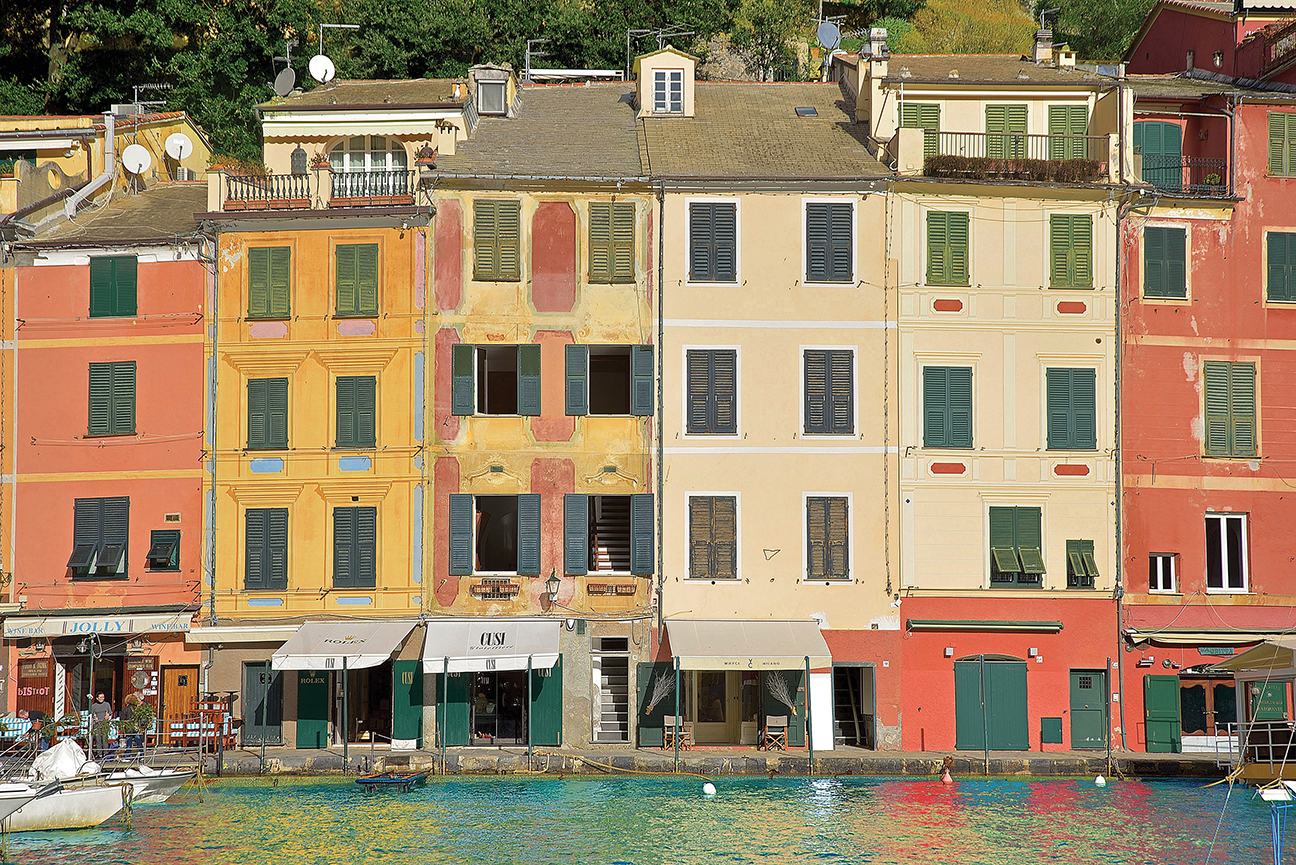
This spacious apartment in Calata Marconi features two levels with four windows (two on each level) overlooking the sea — a true rarity in the most exclusive and well-known village, positioned at the heart of a green promontory surrounded by the bluest sea. The first level features a living room with an elevated dining area and a corridor that leads to the guest bath and the kitchen. “There is so much natural light coming in and it really feels like pie dans l’eau — it’s truly on the water,” says Niccolo Pigni of Engel & Volkers, who is listing the property for 2.75 million euros. “There is no other property in Portofino like this one.”
The internal stairs lead to the second level, which includes three bedrooms, two baths and a studio. “It’s basically 2 condos merged together,” says Pigni. “And, it has three entrances — two in the front and one in the back — guaranteeing privacy and independence.”
Fine architectural details throughout include on-site wooden beams in the living room, that together, with the colorful facades of the building, make this property a unique masterpiece. Direct access from both the road and the sea level are available. “It is perfect for someone who owns a yacht and wants a pied-a-terre to impress guests when he/she comes to Portofino” says Pigni. “Or for a unique properties collector — it is so rare that it is like an art piece to be collected.”
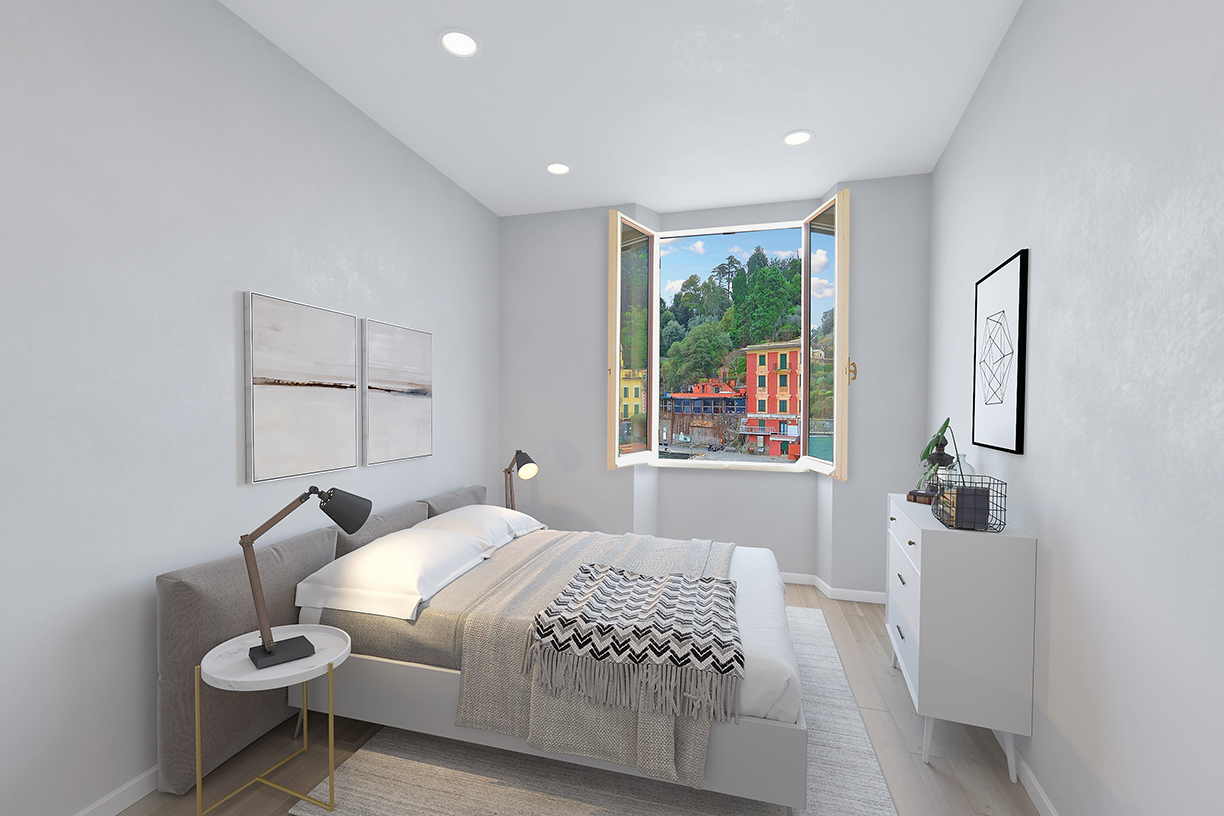
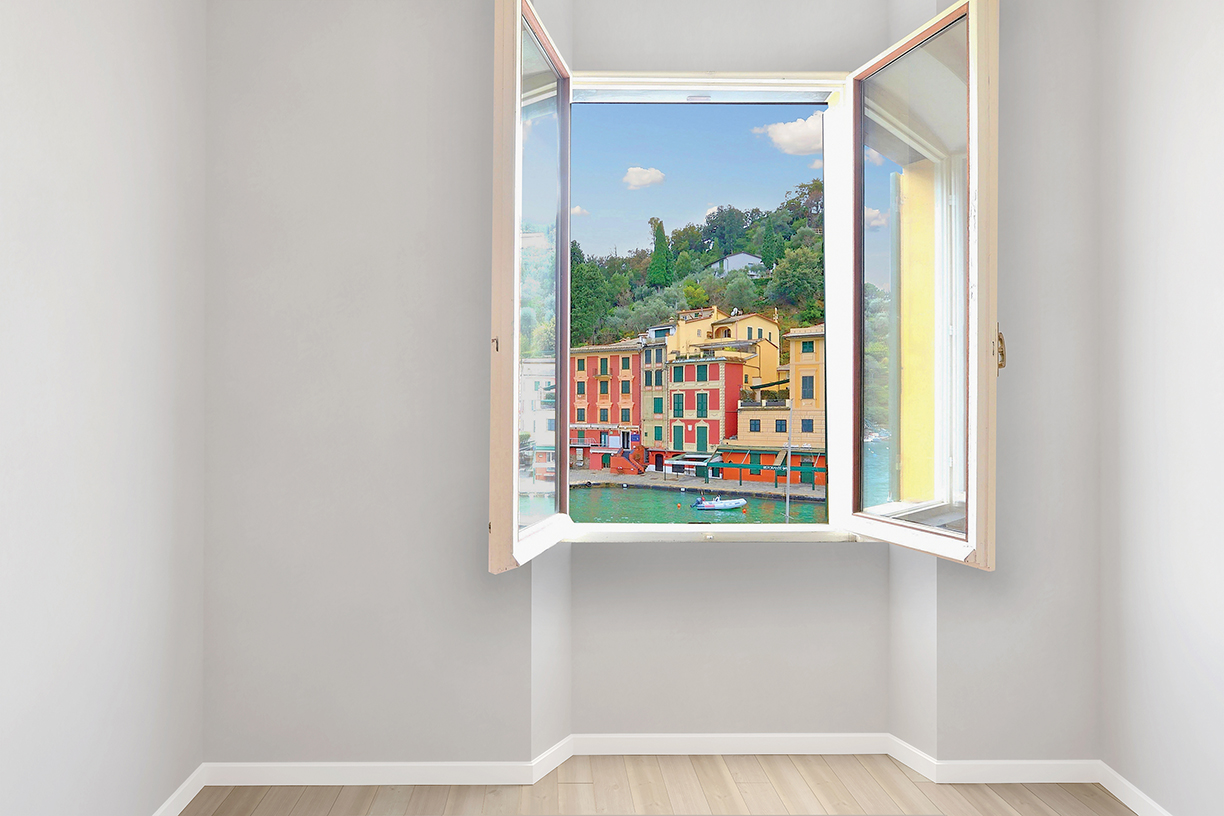
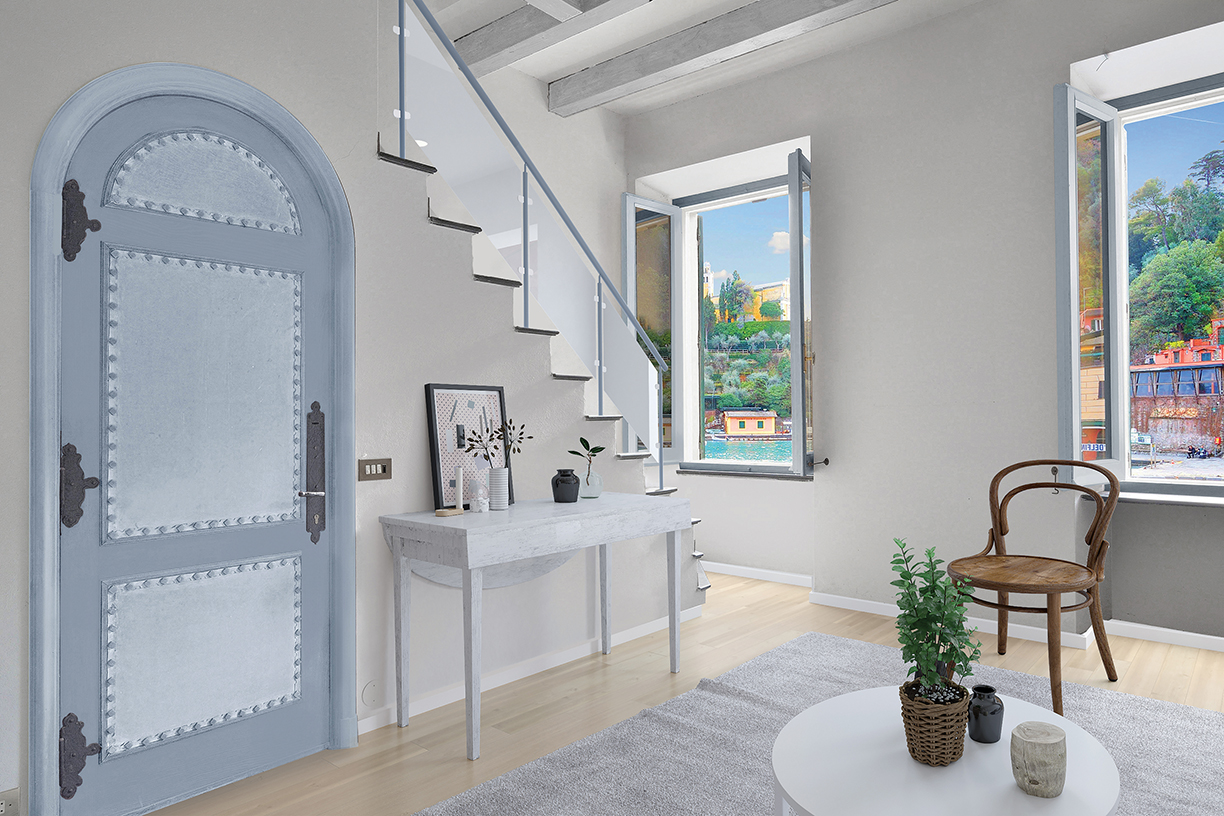
For more information, contact:
Niccolo Pigni
Engel & Völkers – California
www.niccolopigni.evrealestate.com
Niccolo.Pigni@EVrealestate.com
+1 707.331.4327

Khaliah O. Guillory, Owner of Nap Bar
A new set of businesses aims to help a sleep-deprived society relax and rejuvenate.
Nap bars. Upon hearing about this concept, various images come to mind, from a series of bedrooms with designated time slots for napping, to a pillowy oasis set in the clouds. While some ideas are more fantastical than others, the meaning behind many nap bar businesses and their missions is far more down to earth.
Whether naps are offered as a complimentary service or finely curated in a luxury setting, the importance of sleep has been reinvigorated by companies like these who know that the benefits of napping are nothing to sneeze (or snore) at in today’s world.
In recent years, with the rise of globalization and businesses running 24/7, productivity can and has for some time become a priority. Maria Jose Hernandez of recharj, a meditation studio headquartered in Washington, D.C., says the needs of the human body should take precedence, however.
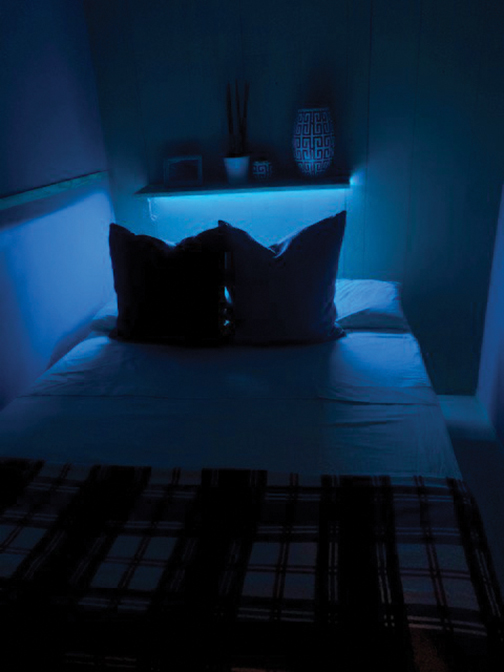
An avid lover of naps since childhood, Guillory developed her company as a way to keep herself from “taking naps in [her] car.”
Photos courtesy Nap Bar.
“Science has proven that sleep is how you are able to learn, retain memory — all these functions that we need to be productive.”
Many nap bars and sleep-oriented businesses have been developed by busy business professionals and entrepreneurs who found themselves suffering from sleep deprivation or sleep-related issues. For example, Khaliah O. Guillory was working at a Fortune 500 company and struggled with getting restful sleep when she was inspired to open Nap Bar in Houston. An avid lover of naps since childhood, she developed her company as a way to keep herself from “taking naps in [her] car,” and engage other young professionals to rest, relax and feel rejuvenated through a curated, white-glove napping experience.
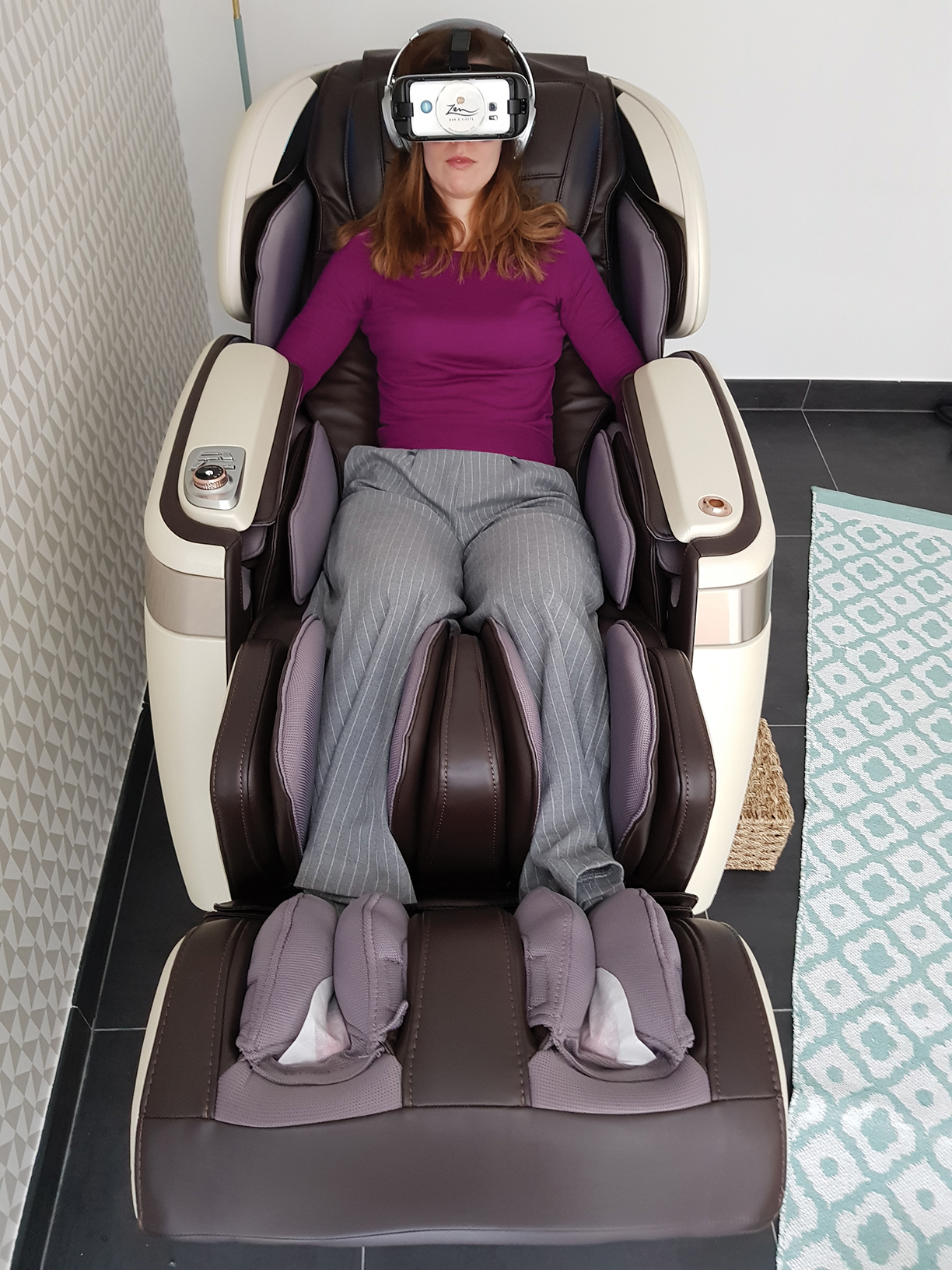
Top: Zen – Bar à Sieste Weightless Chair and VR.
Photos courtesy Zen – Bar à Sieste
Christophe Chanhsavang and his wife, Virginie, have had similar trials and tribulations. From Virginie’s corporate work hours to Christophe’s long hours of study, he realized from his experience working in the UK, China and Greece how much the concept of wellness was nonexistent in the French society. To avoid taking more naps in the office bathroom, Chanhsavang says they founded Zen – Bar à Sieste in 2011 in Paris and have since approached wellness from a holistic perspective by promoting sleep, nutrition, physical activity and mental health.
Professionals in the wellness industry have noted and continue to highlight the importance of sleep, which in turn has led to research and results into the benefits of napping. Guillory offers facts that have helped fuel the educational aspect of Nap Bar, including a NASA statistic that suggests shorter nap durations are better for reducing the impact of sleep inertia, a physiological state of impairment that affects cognitive and sensory-motor performance.*
Mauricio Villamizar, CEO of Pop & Rest in London, takes these findings a step further, noting how a lack of sleep can ultimately lead to disruptions in workflow. “Sleep deprivation is linked to lower productivity at work and it’s one of the main drivers of absenteeism … in the workplace. If we translate this into working days, we are looking at around 200,000 working days being lost each year in the UK only. In terms of economic consequences, it’s around £40 billion, almost 2 percent of the UK’s GDP,” Villamizar says.
Wellness overall has seen a resurgence in strength from businesses like these, as health has come to be the utmost priority of nations around the world. And just like there are many types of methods of getting and staying well, there are a variety of ways to nap.
Pop & Rest is a London-based wellness startup that connects locals and travelers with sleep and meditation pods, offering clients safe and secure spaces to unwind, rest, and work peacefully. According to Villamizar, customers can visit one of the company’s various locations throughout London and become immersed in a calm environment where the pods are situated.
“Once you are inside, your pod will be like a box that features a single bed, small table, along with accessories to change lights, music and the aroma,” he says, noting that everything is built to ensure the best relaxation experience. The pods are movable and soundproofed, and only require a power supply and WiFi connection to function, an enticing offer for companies looking to purchase these pods for their own offices.
The aforementioned Nap Bar curates a luxury napping experience for customers, which Guillory says is ensured by engaging all five senses. For sight, all of the custom suites are outfitted with mood lighting that is adjustable; for taste, a duo of raw juice shots are offered with rich nutrients and ingredients that aid in relaxing the body pre-nap, and waking it up post-nap; for hearing, exclusive brain waves are curated for each client and played inside suites that increases the release of melatonin in the body by 97 percent; and for smell, an aromatherapy pillow mist infused with lavender is available.
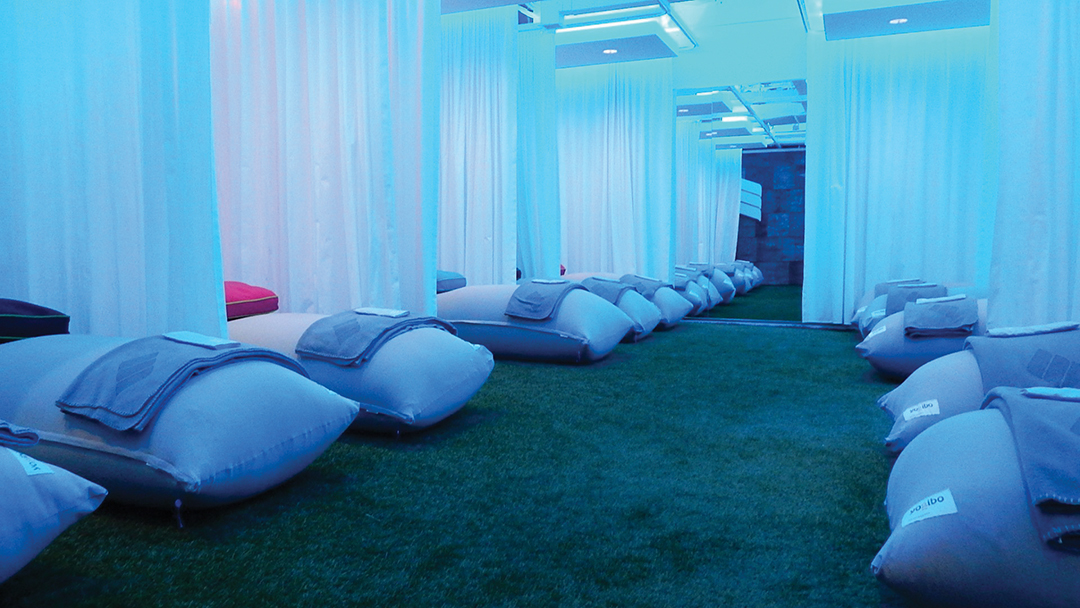
recharj – D.C. meditation room and class.
Photos courtesy recharj
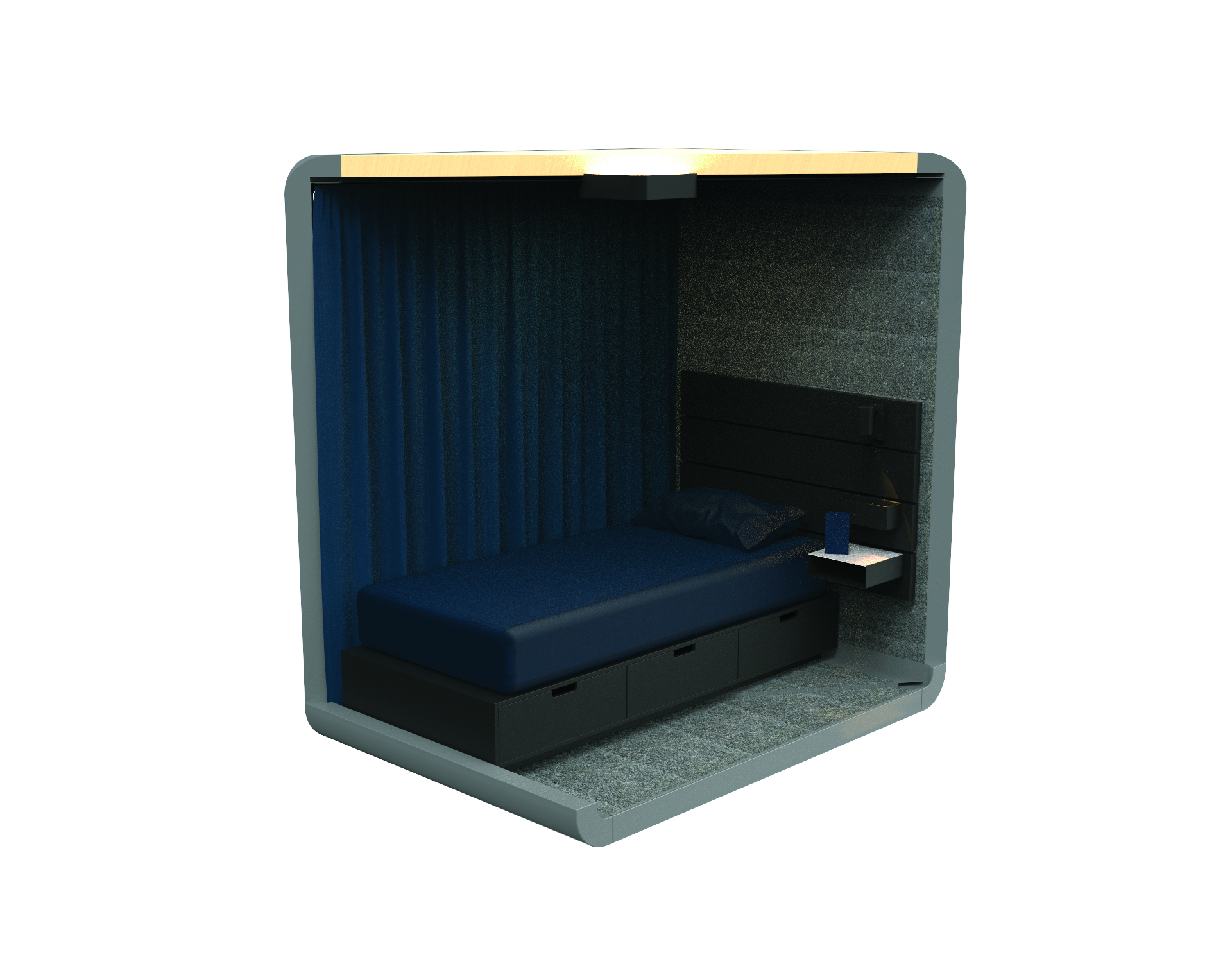
Pop & Rest sleep pod for napping.
Photo courtesy Pop & Rest.
The final sense, of touch, goes a step further, as all suites include an organic, locally sourced mattress, linens and sheets, and each room is painted with toxin-free paint. All of these inclusions are accompanied by a full-service concierge who will guide customers through the experience and help them on their wellness journey
According to Chanhsavang of Zen – Bar à Sieste, wellness is the future of humanity, a future he aims to advance with the Siesta Bar, which combines technological and traditional means of treatment for sleep deprivation. For nap services, customers can choose from a luxurious memory foam retreat, a zero-gravity massage chair or a Shiatsu bed; for aiding in relaxation and overall wellness, complimentary services include massages, virtual-reality meditation and even a fish spa.
As a meditation studio, recharj has been offering premier restorative practices to help clients, which includes the use of power naps. According to Hernandez, during open hours these power nap sessions are curated to be 25 minutes long and offered in large Yogibo chairs, a favorite for many. “A client once described them to me as if you’re laying down in a cloud,” Hernandez says, which only adds to the whole-body experience.
Binaural beats are also incorporated into the nap session, a type of music melody that registers at different frequencies that are meant to relax your body and get it ready for sleep. Overall, the studio aims to bring a sense of relaxation as well as mindfulness through meditation to its clients. “We offer workshops about mindful leadership, mindful communication and mindfulness in general,” Hernandez says, which in turn helps clients learn ways to de-stress and regain focus on whatever tasks lay ahead.
Unlike the typical fad that comes and goes, wellness is rooted in a deep need for comfort and stability. As we write this, we’re in the midst of a public health crisis, and brick and mortar locations may not be open. But there are ways to implement the wisdom of these businesses from your own home. Studios like recharj continue to offer online meditation classes, in an effort to keep a consistent schedule that is based solely on keeping well. And though the future is uncertain, businesses like Pop & Rest, Nap Bar and Zen – Bar à Sieste continue to work and create solutions for customers, from promoting online educational sessions and tips to developing applications, products and services for when businesses are fully up and running.
“Wellness is not just a fashion, but a fundamental trend in our societies,” Chanhsavang asserts. “Hopefully the nap services and related businesses will become a game-changer in the hospitality industry.”
*Source: NASA conducted a study on sleepy military pilots and astronauts and found a 26-minute nap increased productivity by 34 percent and alertness by 54 percent.
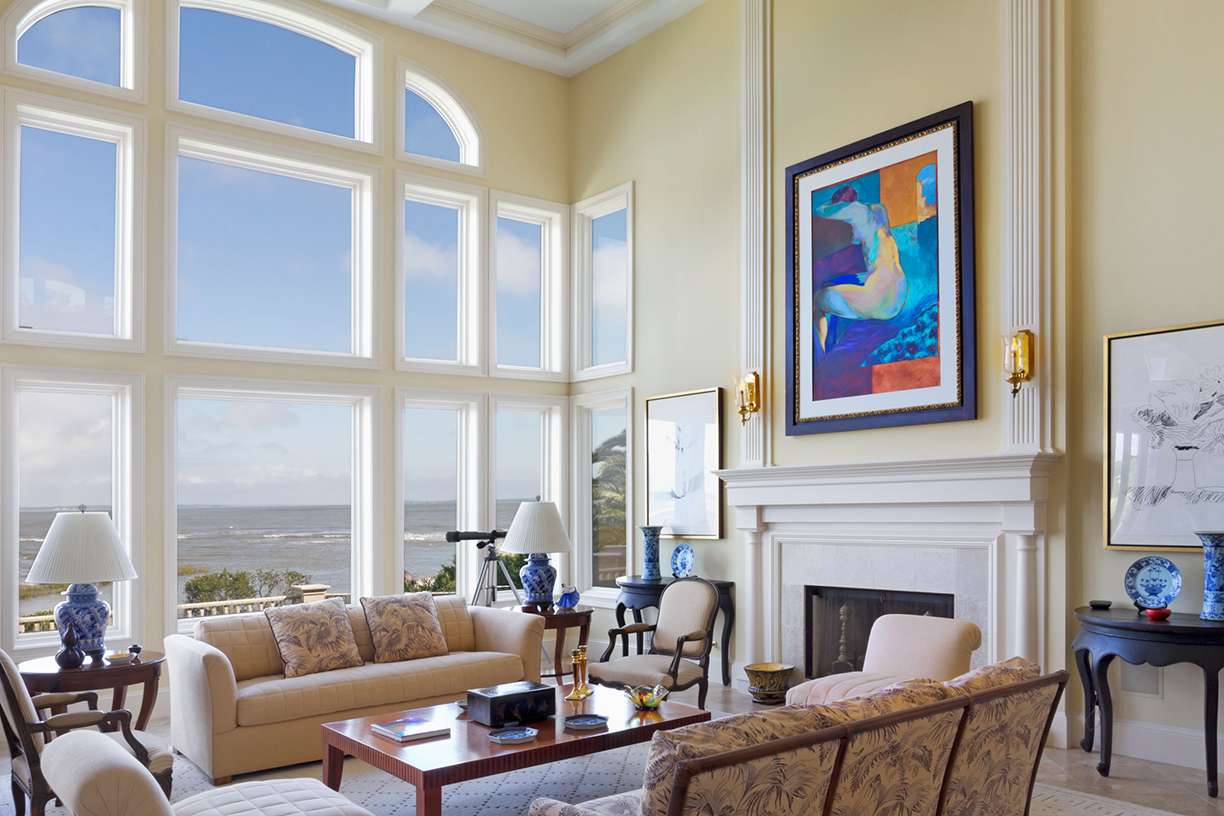
Only once in a lifetime does a legacy property like 136 Fort Walker Drive become available! A unique home with spectacular water views on 3 sides, a stunning great room featuring floor to ceiling windows with 270-degree views. This elegant 2-story waterfront home features 2 master suites, 4 bedrooms, 4.5 baths, gourmet kitchen, granite counters, 3-car garage and a boating dock. This private enclave is perfect for entertaining and enjoying. Located where Port Royal Sound meets the Atlantic Ocean, delight in brilliant sunrises and sunsets from multi-level decks, swim in the sea or the pool, or relax in the spa or on your own private beach surrounded by nature. $3,849,999
Click here for a virtual tour of this stunning South Carolina property!
For more information, contact:
Wayne McDonald
Premier Island Properties
hiltonheadluxuryproperties.com
info@hiltonheadluxuryproperties.com
843.384.5764
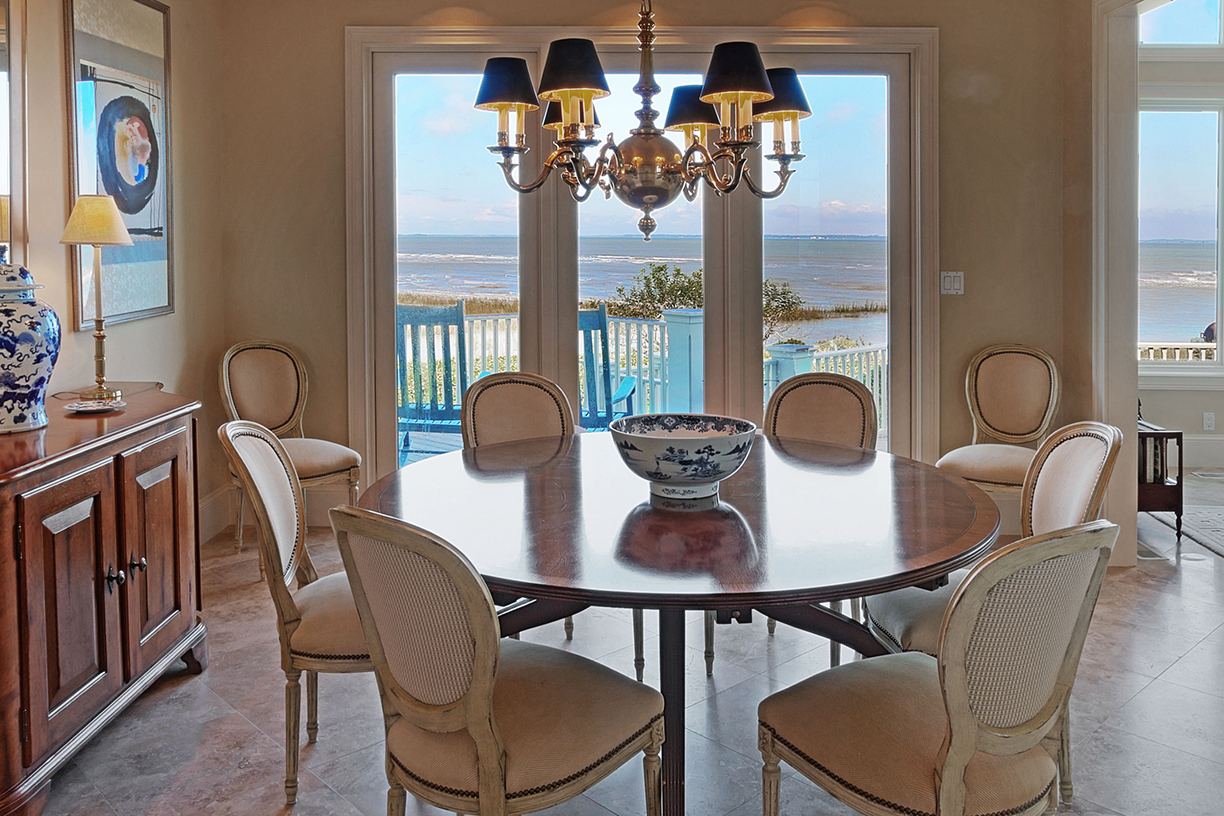
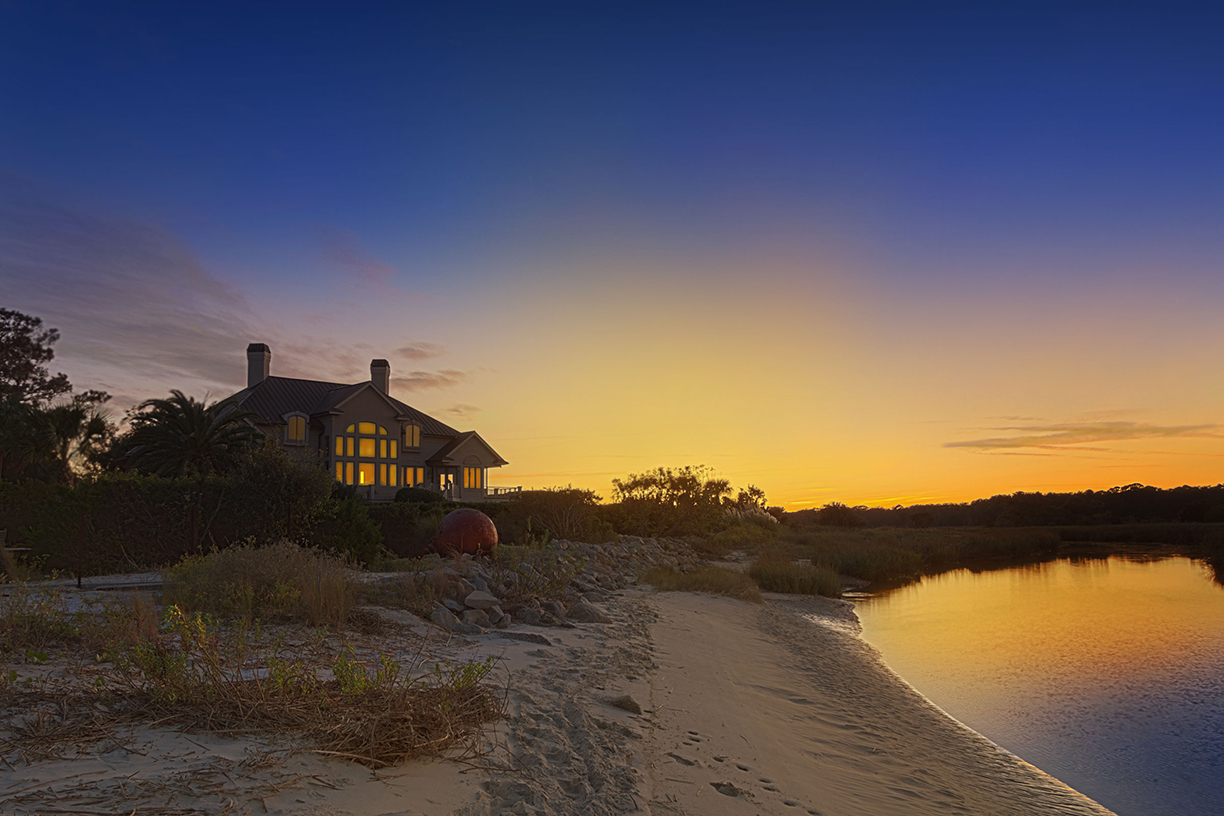
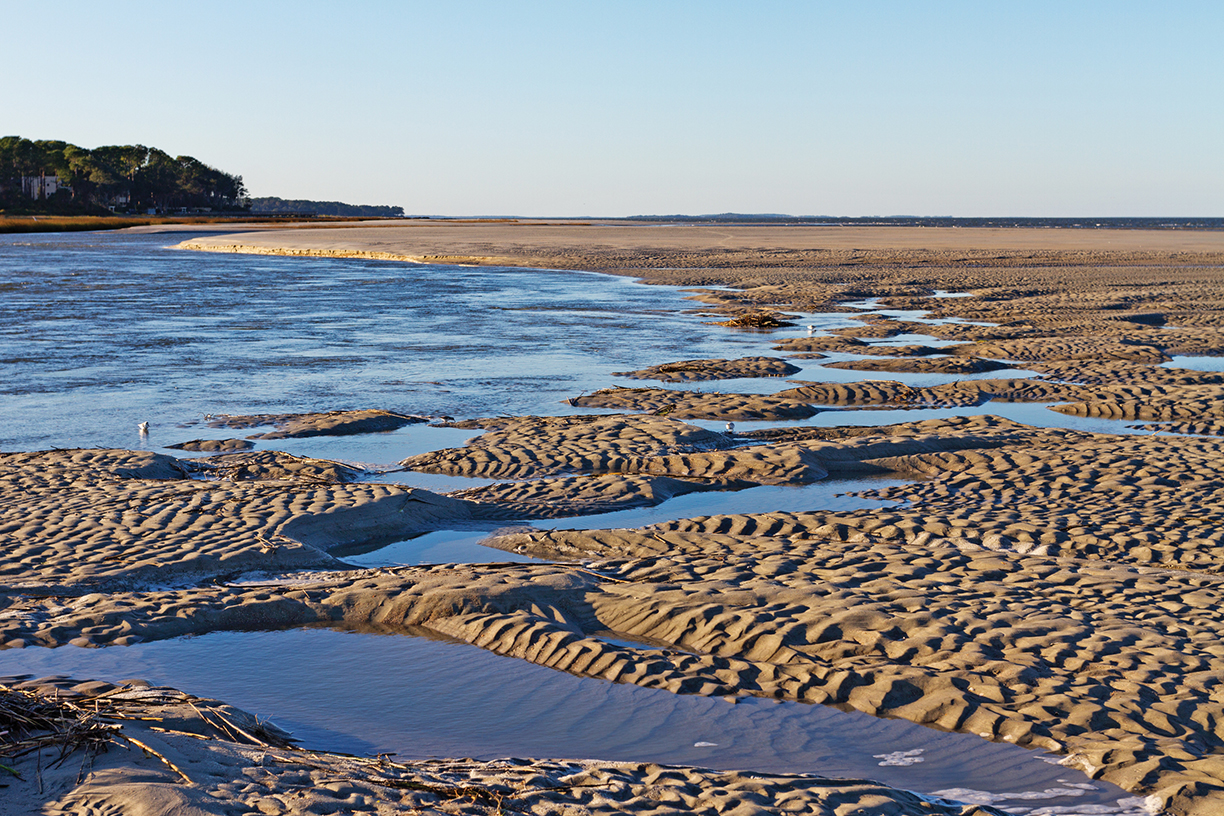
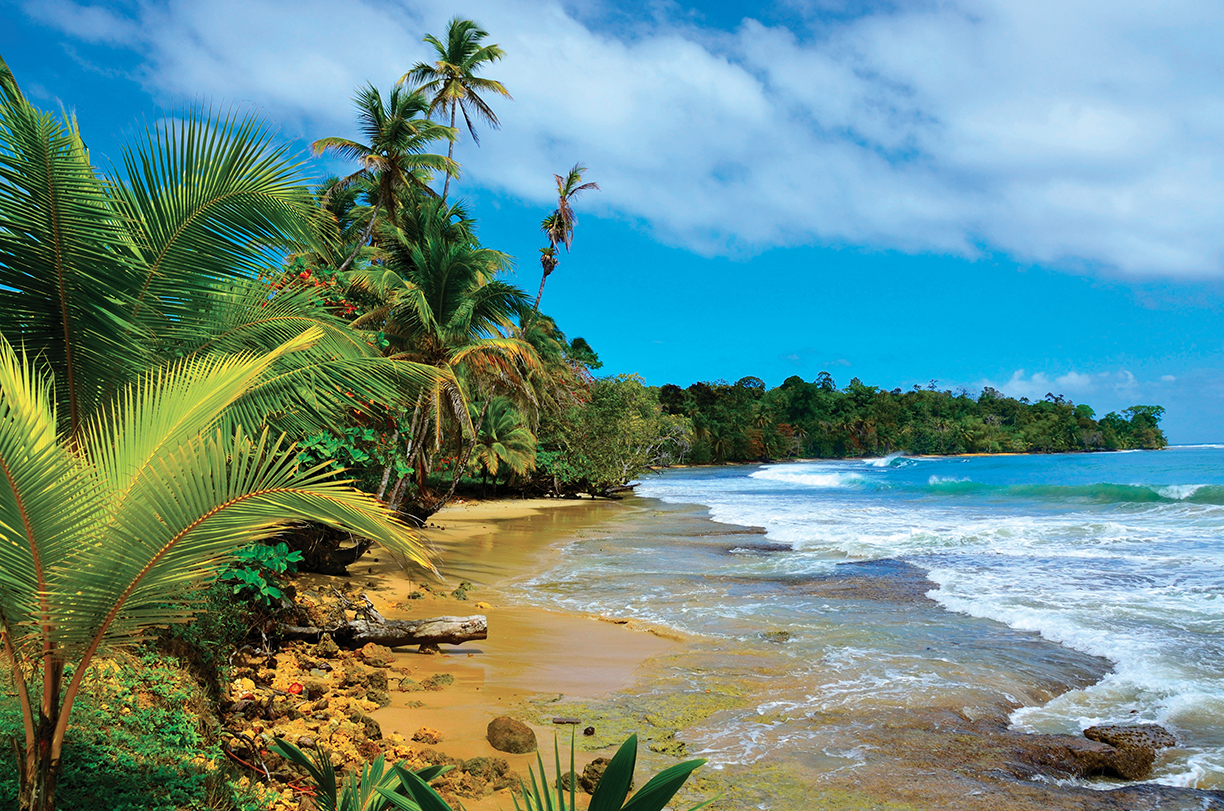
©istockphoto.com / SimonDannhauer
Government-sponsored incentives are drawing retirees to Panama.
From superior benefits for retirees and an assortment of visa options, to the captivating sights and real estate options available, there is much to see and even more to experience as a resident of Panama.
For retirees in particular, the benefits offered through Panama’s programs have crowned it as “one of the top retirement destinations in the world,” according to Stephanie Villarreal, president and Realtor for Your Panama Real Estate Connection. She notes that the government-sponsored “Jubilado” retirement program provides impressive discounts on a range of expenses, including dental/eye exams, medical consultations, restaurant bills, airline tickets and even car purchases. What is needed to qualify is an annuity/pension-like income of $1,000 USD per month. Having good, affordable medical services like, amongst others, the Johns Hopkins-affiliated hospital in Panama City is another added benefit, Villarreal says. New residents find themselves taking on the Panamanian lifestyle in no time at all.
The process of immigrating to Panama is relatively simple as well, Villarreal says, and with the help of experienced law professionals, the process is straightforward and easy.
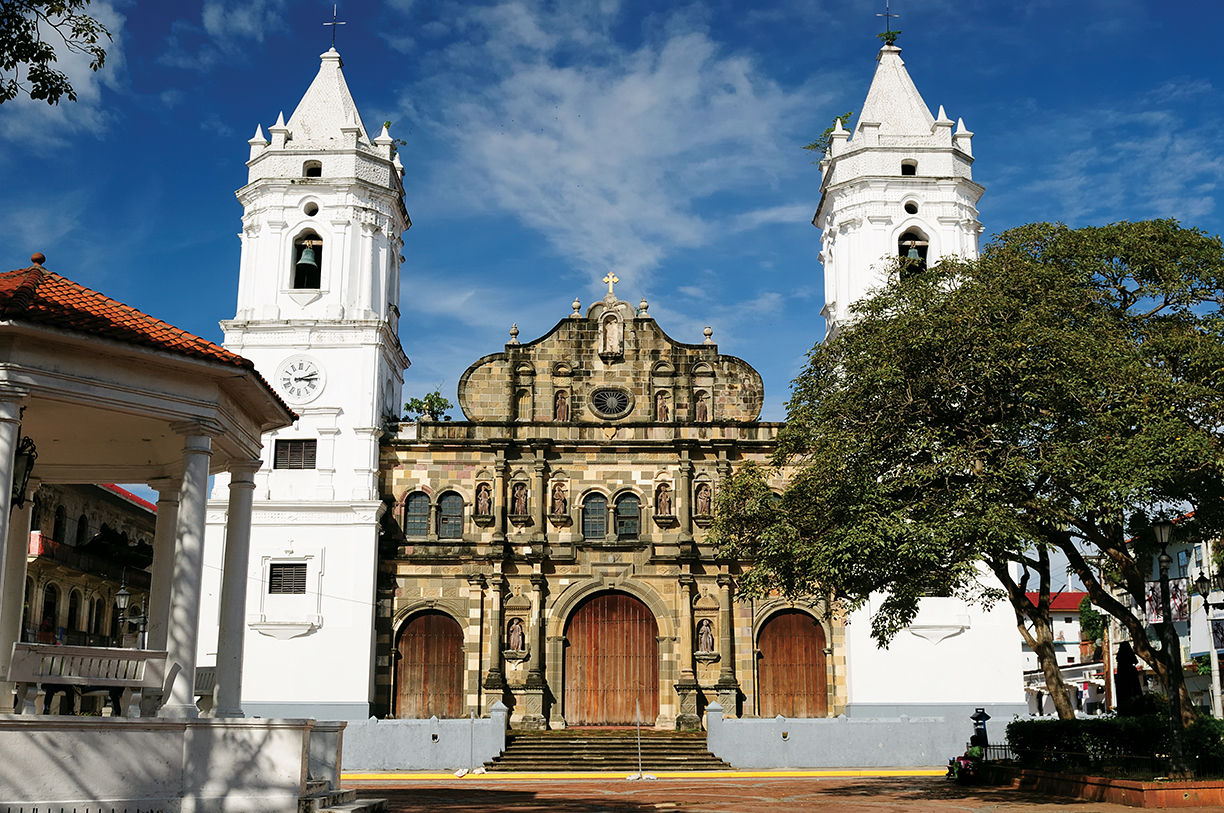
Basilica of the Mother of God is prominent in Casco Viejo, where churches dating back hundreds of years blend with activities for those of all ages.
Photo ©istockphoto.com / rchphoto
“We work alongside attorneys to assist our clients with immigration and residency,” she adds. The Panama Friendly Nations Visa, for example, is also a popular special immigration program for citizens of selected countries who have professional or economic ties with Panama.
Those exploring their immigration options should also understand the differences in lifestyle of Panamanians, from “slower pace of life” to the fact that Spanish is the country’s main language. However, every difference also offers an opportunity to learn and experience the unique nuances of Panama. “Things in Panama move slower than in North America and Europe,” says Villarreal, “but with our team’s extensive knowledge and experience of how things work in Panama, we can assist our clients to adjust to life in the country.”
Adjusting to life in Panama can come easily with the help of the right brokerage team who will help guide potential buyers to their dream home or neighborhood. Villarreal says her team recommends that buyers should visit the country first to get a feel for what Panama is all about. “There are established ‘expat’ communities in Panama City, various communities at the beaches … there are many clubs offering get-togethers, bingo, Spanish courses and more.”
Add this to the plethora of good restaurants, cafes and bars amidst the cobblestone roads and churches of Casco Viejo, Panama City’s old quarter, and the amazing beaches and archipelagos, and there’s too much to fit into one trip. So, perhaps, make it a trip to last the rest of your life?
This article originally appeared in the Unique Homes Spring ’20: Elite edition.

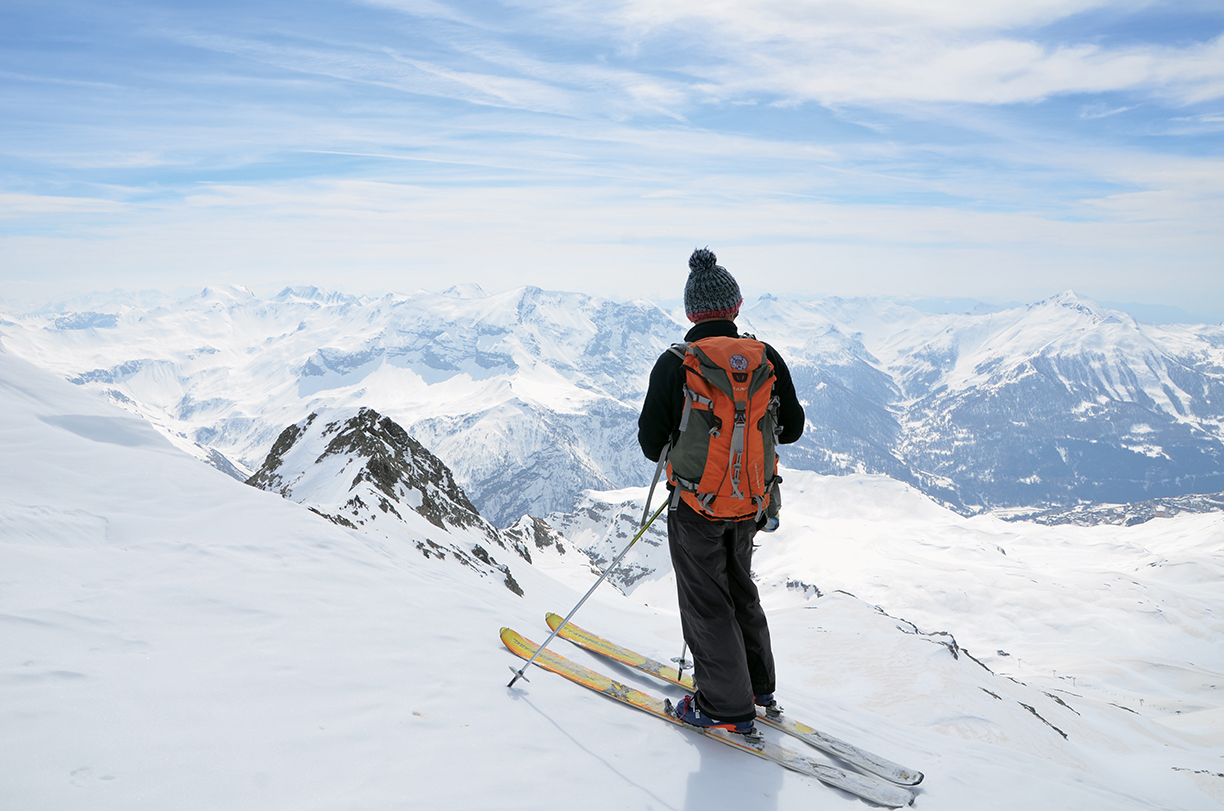
Photo by Sally Guillaume.


